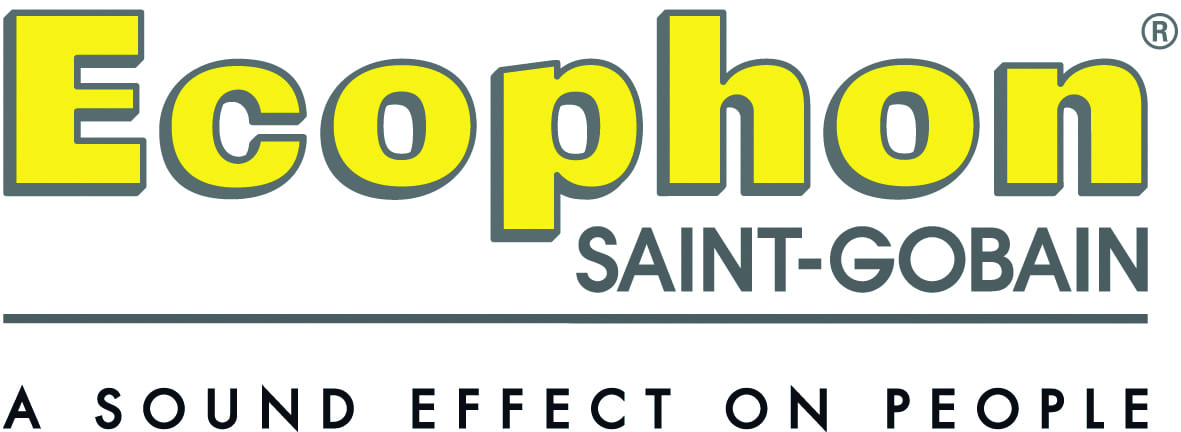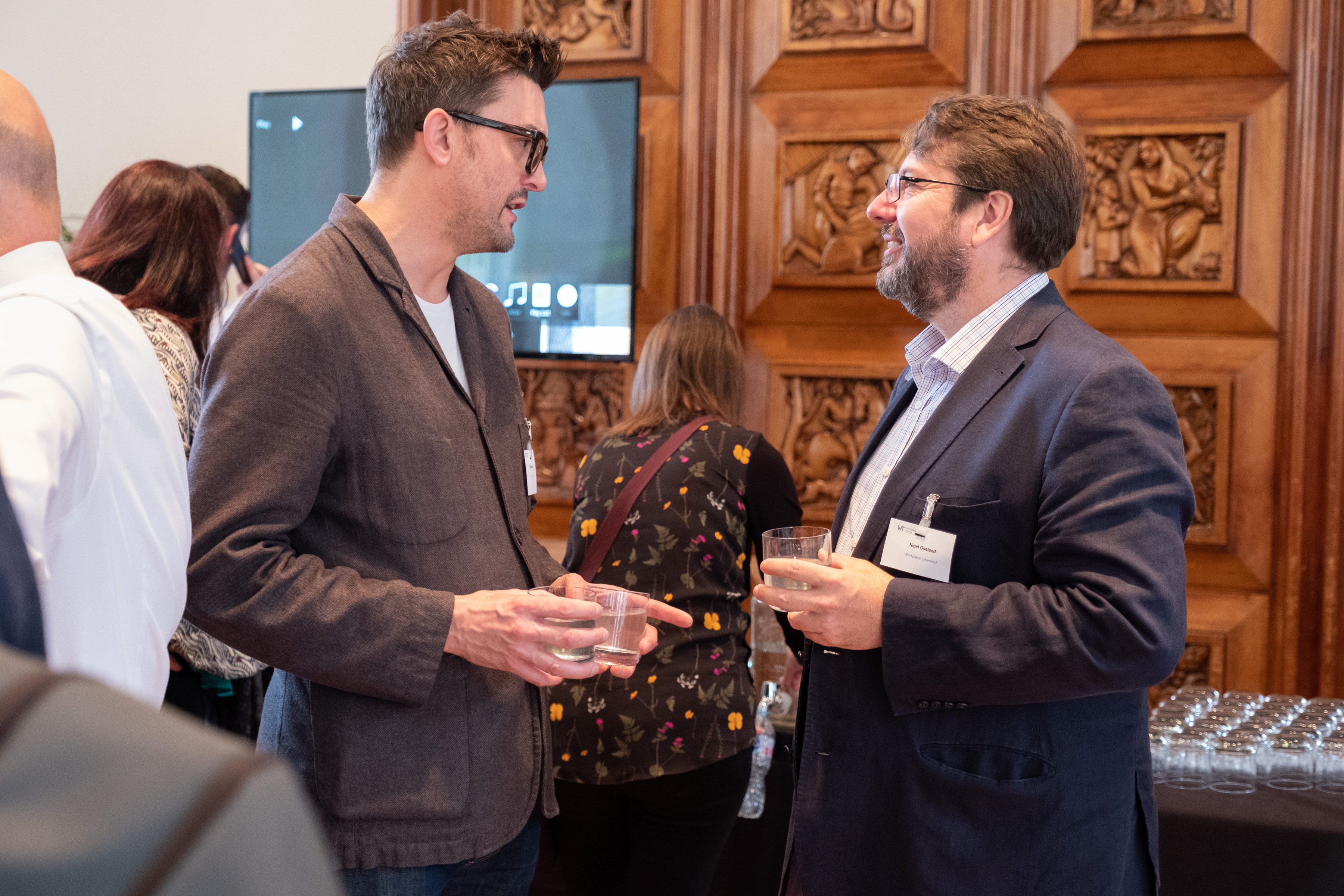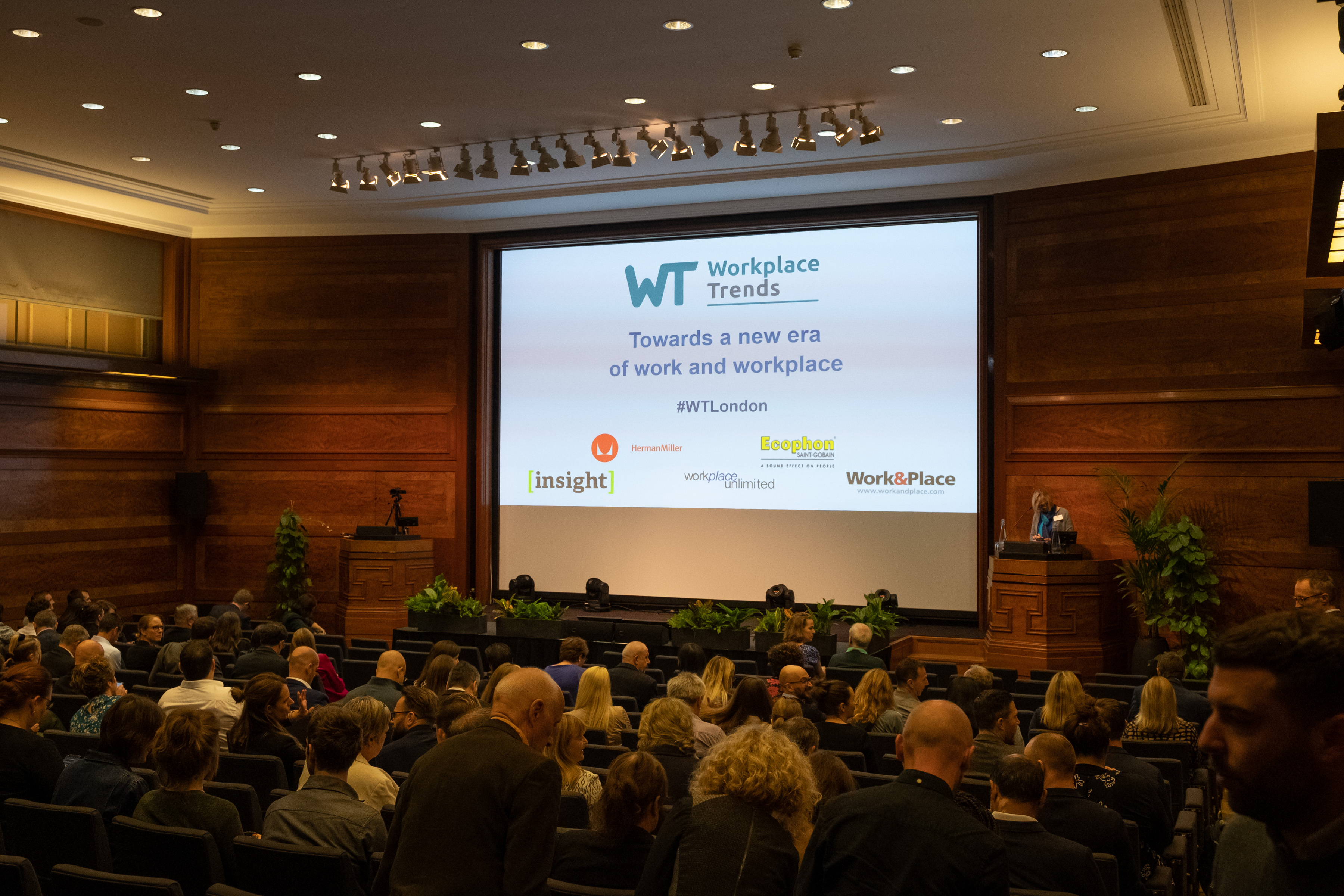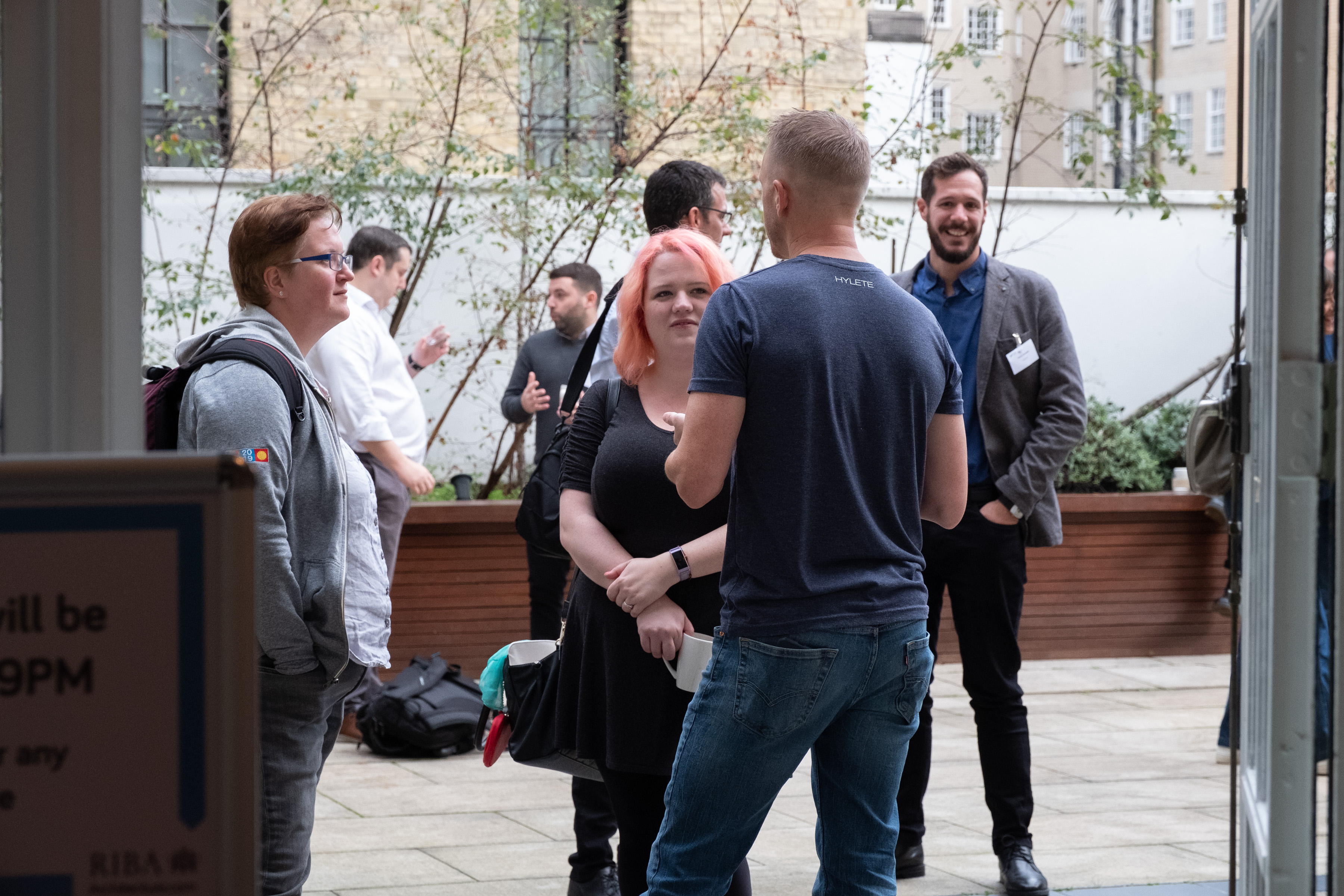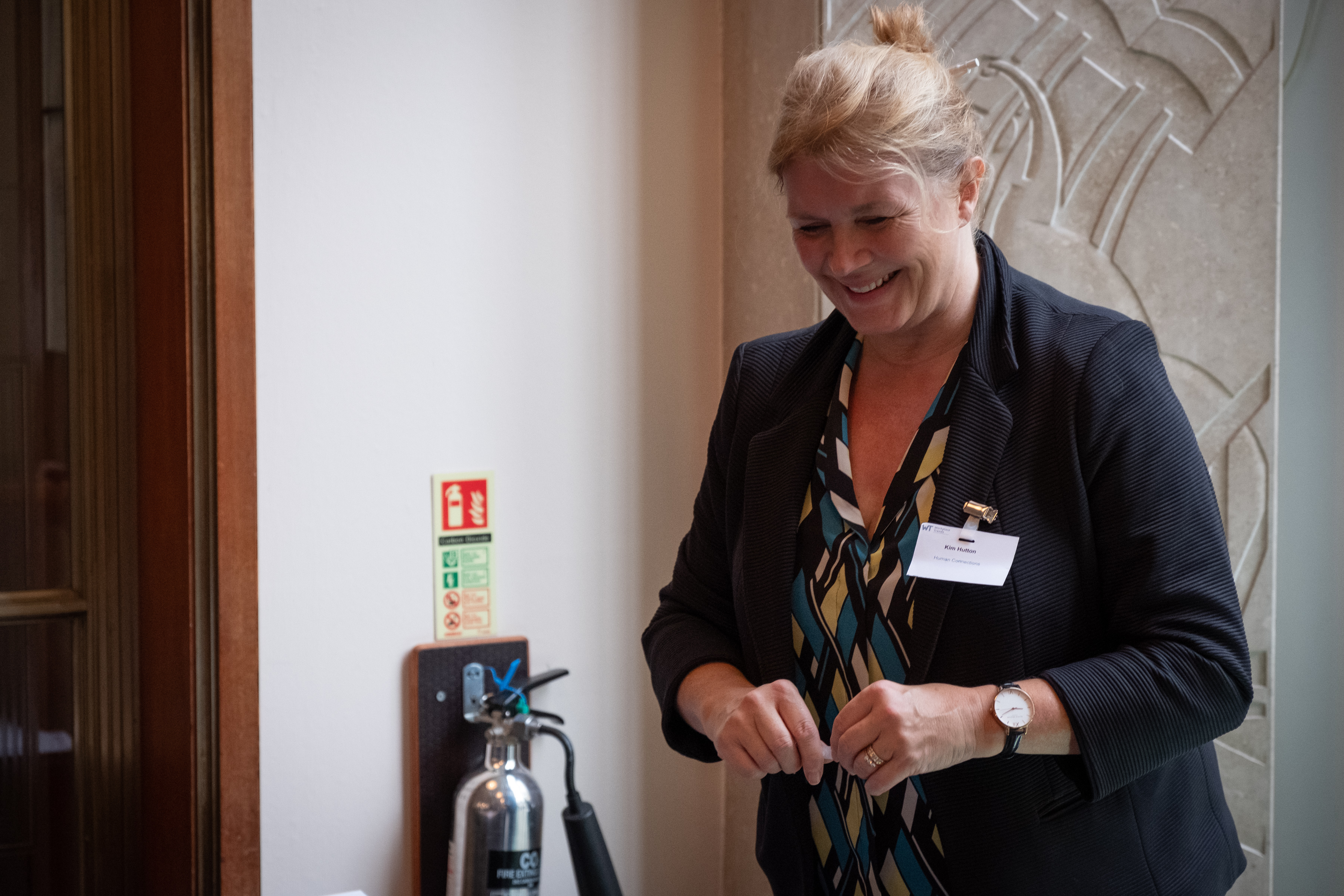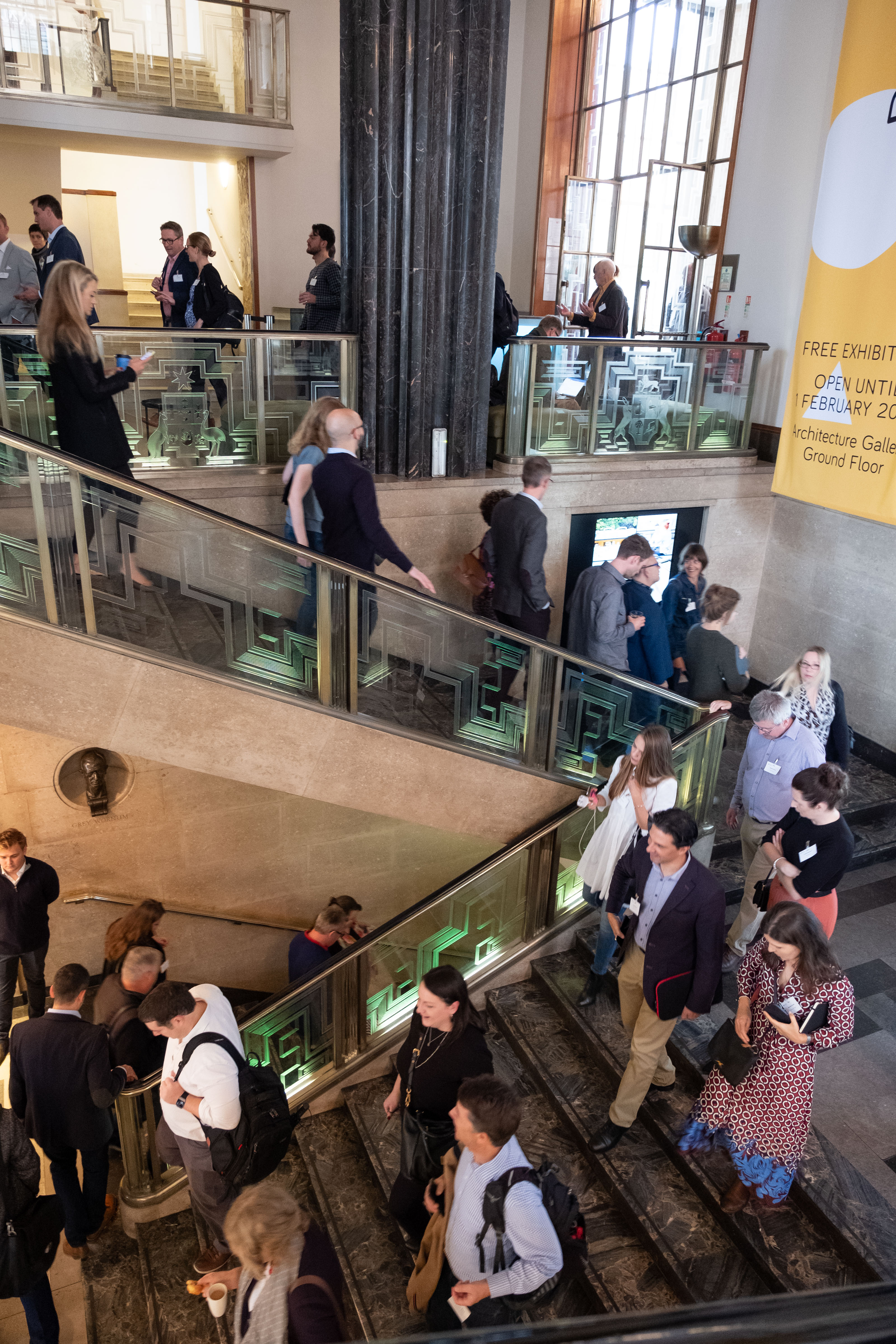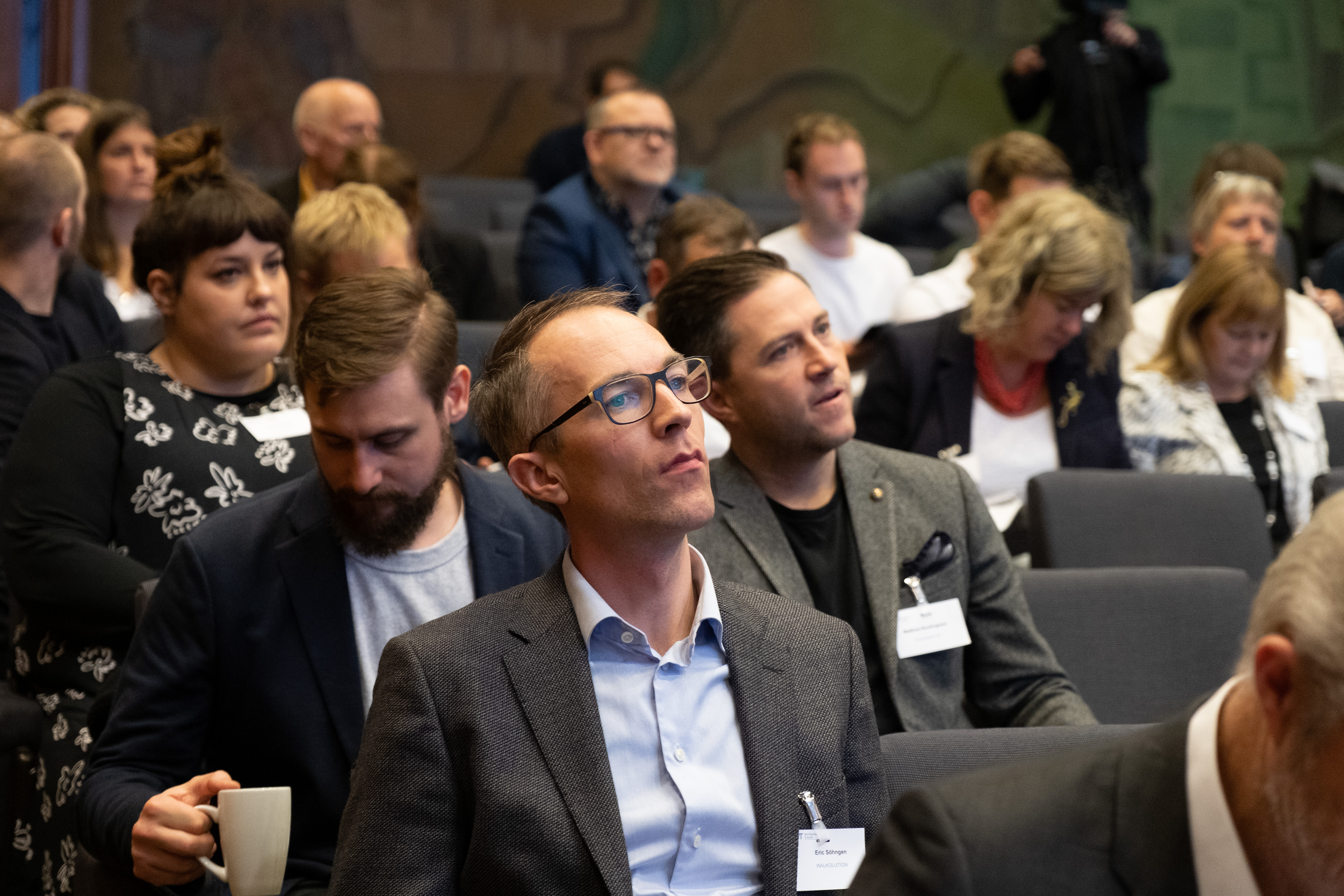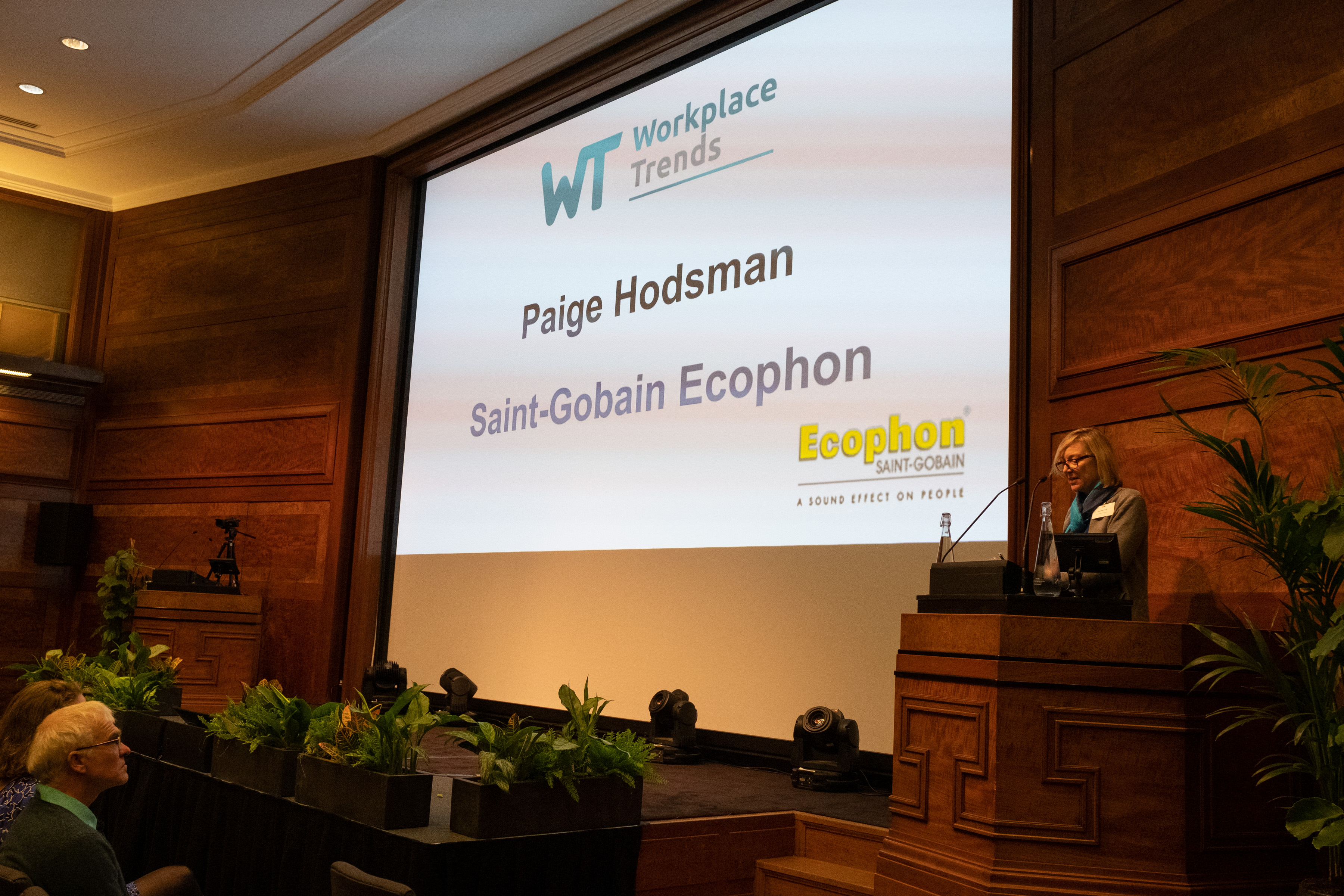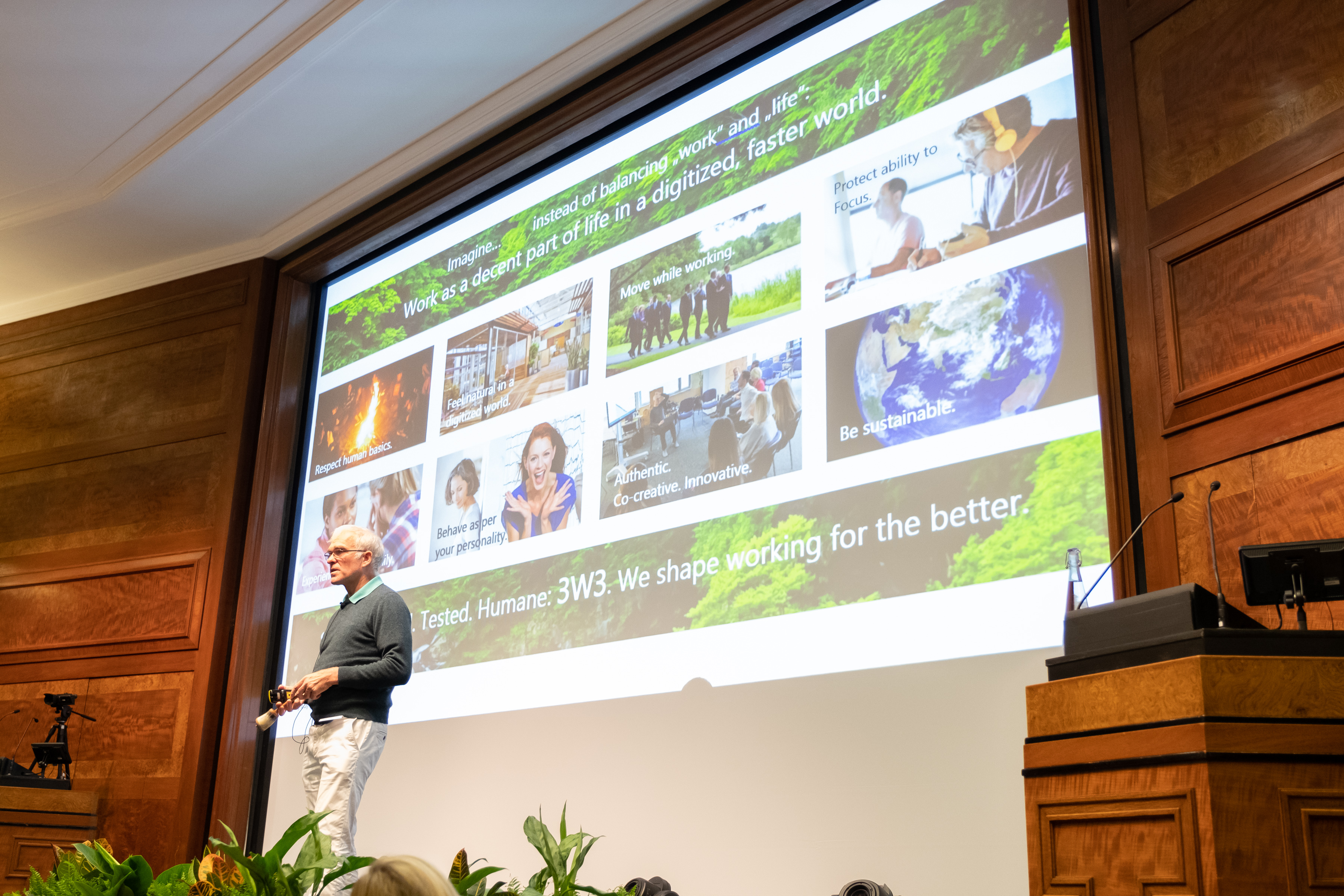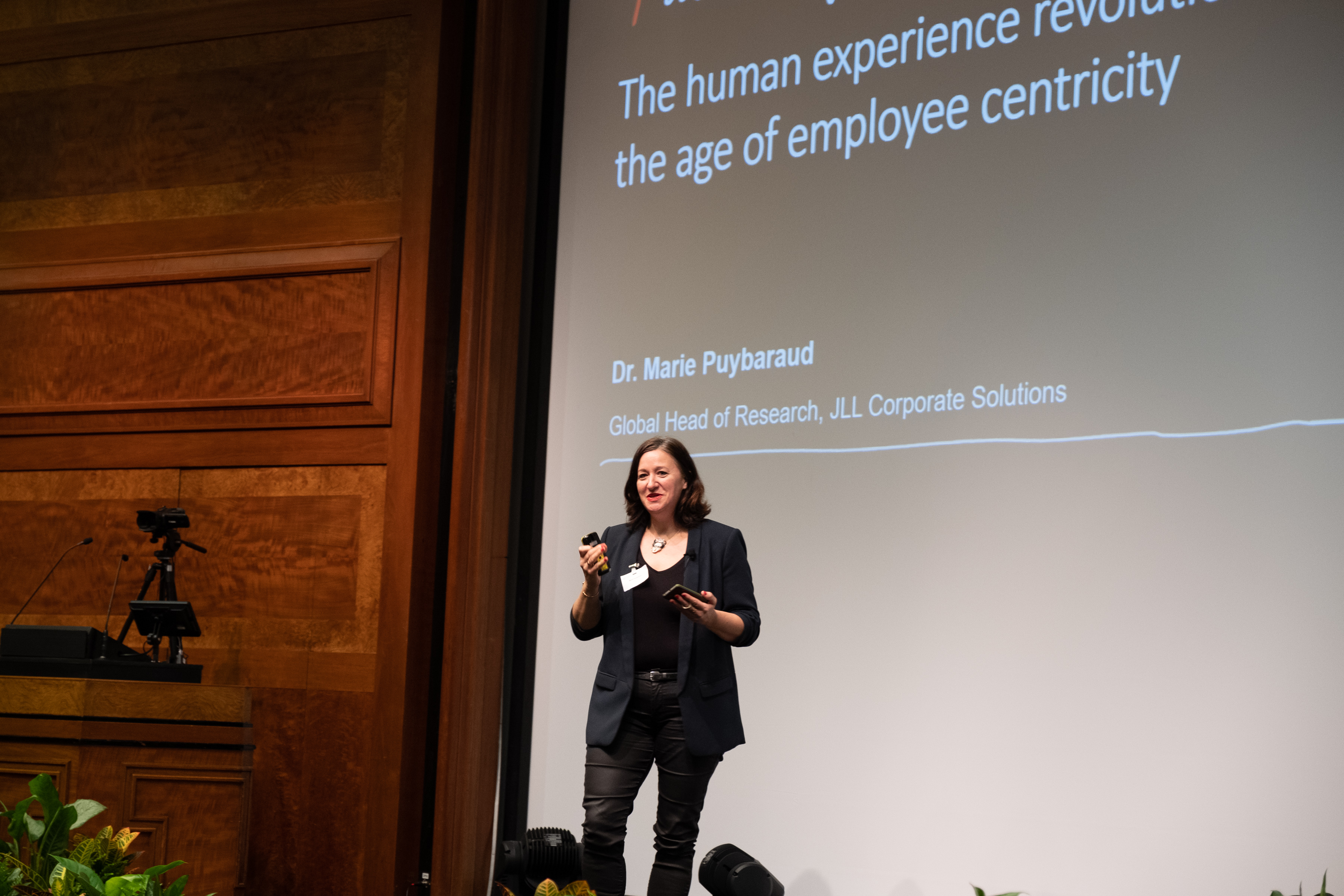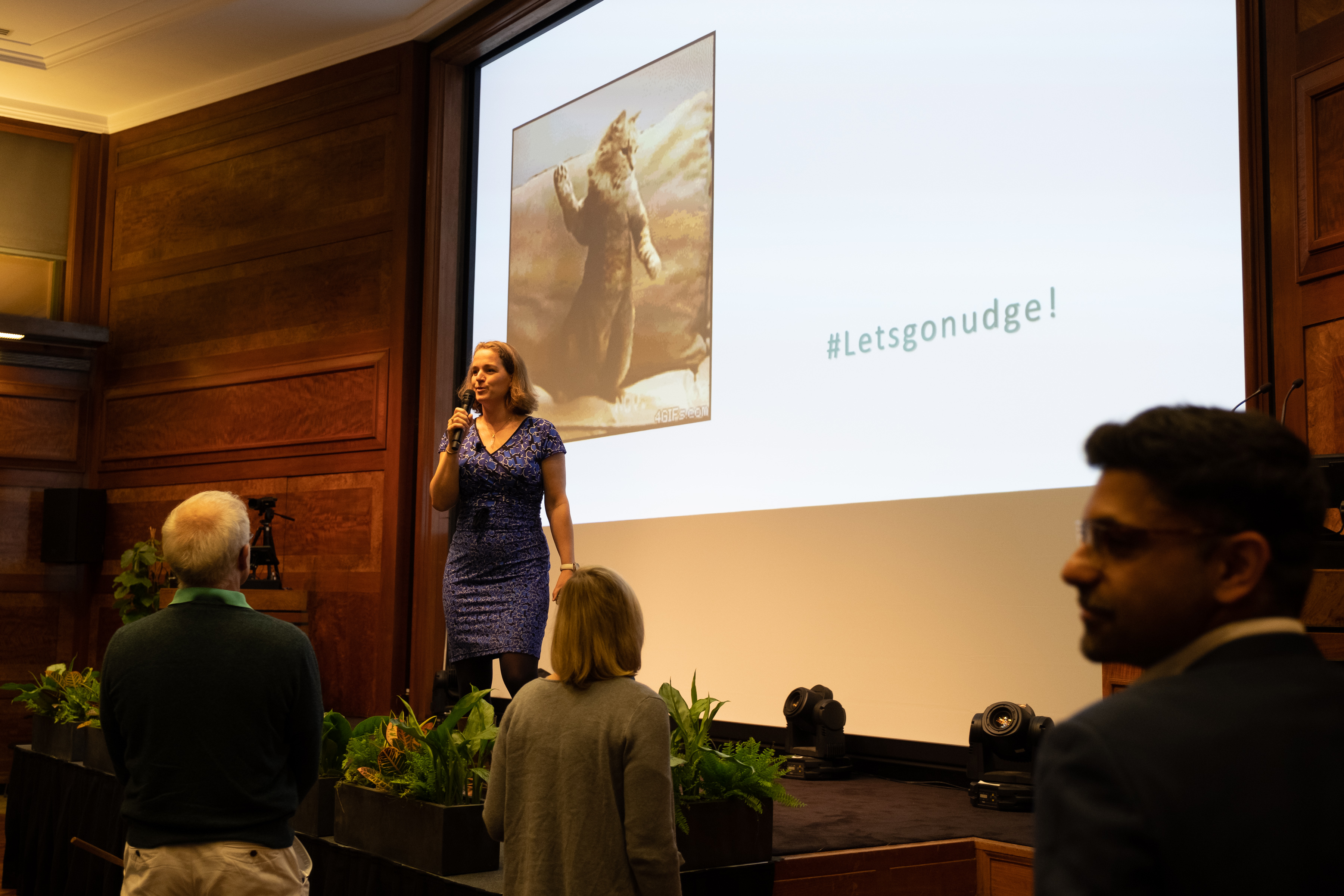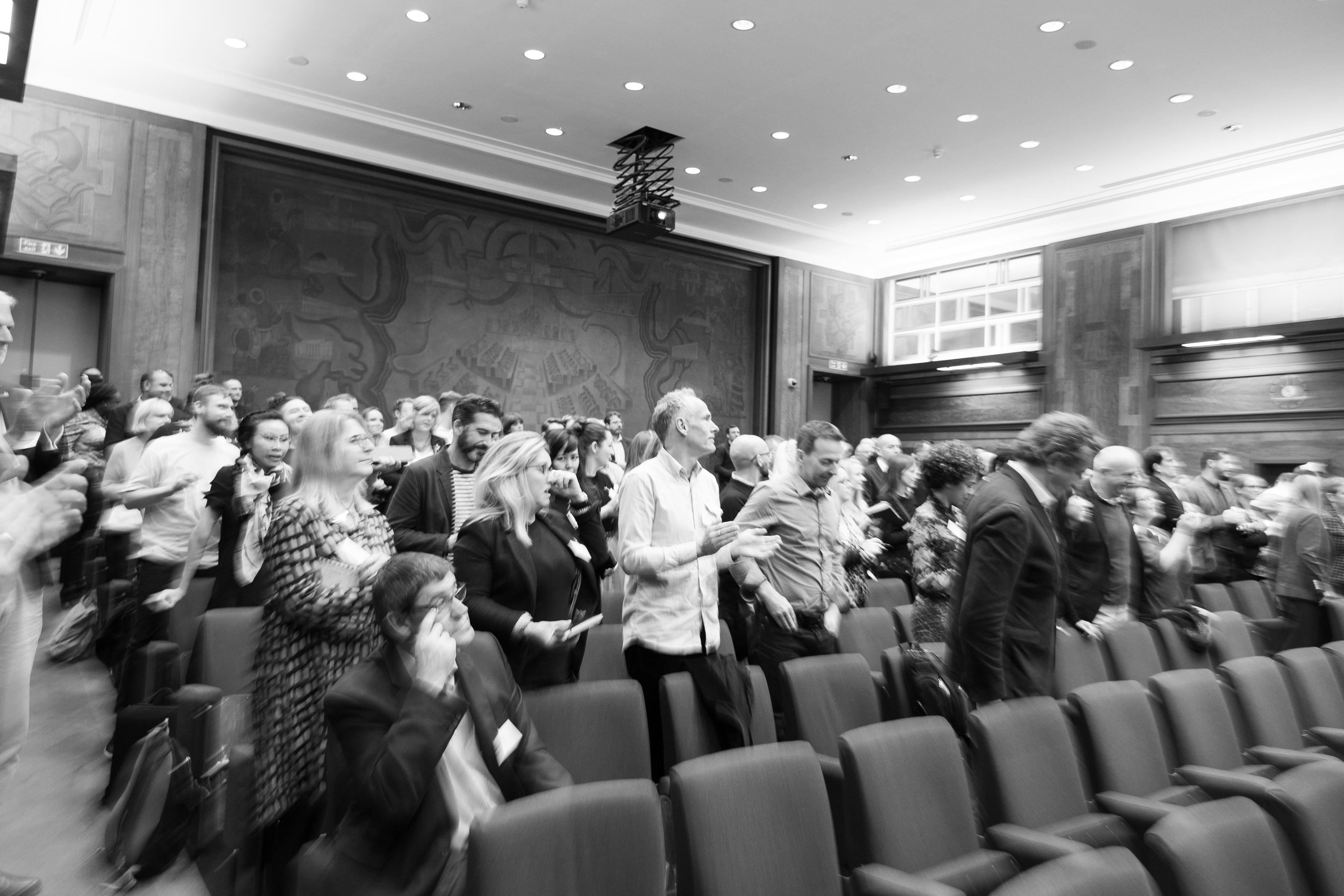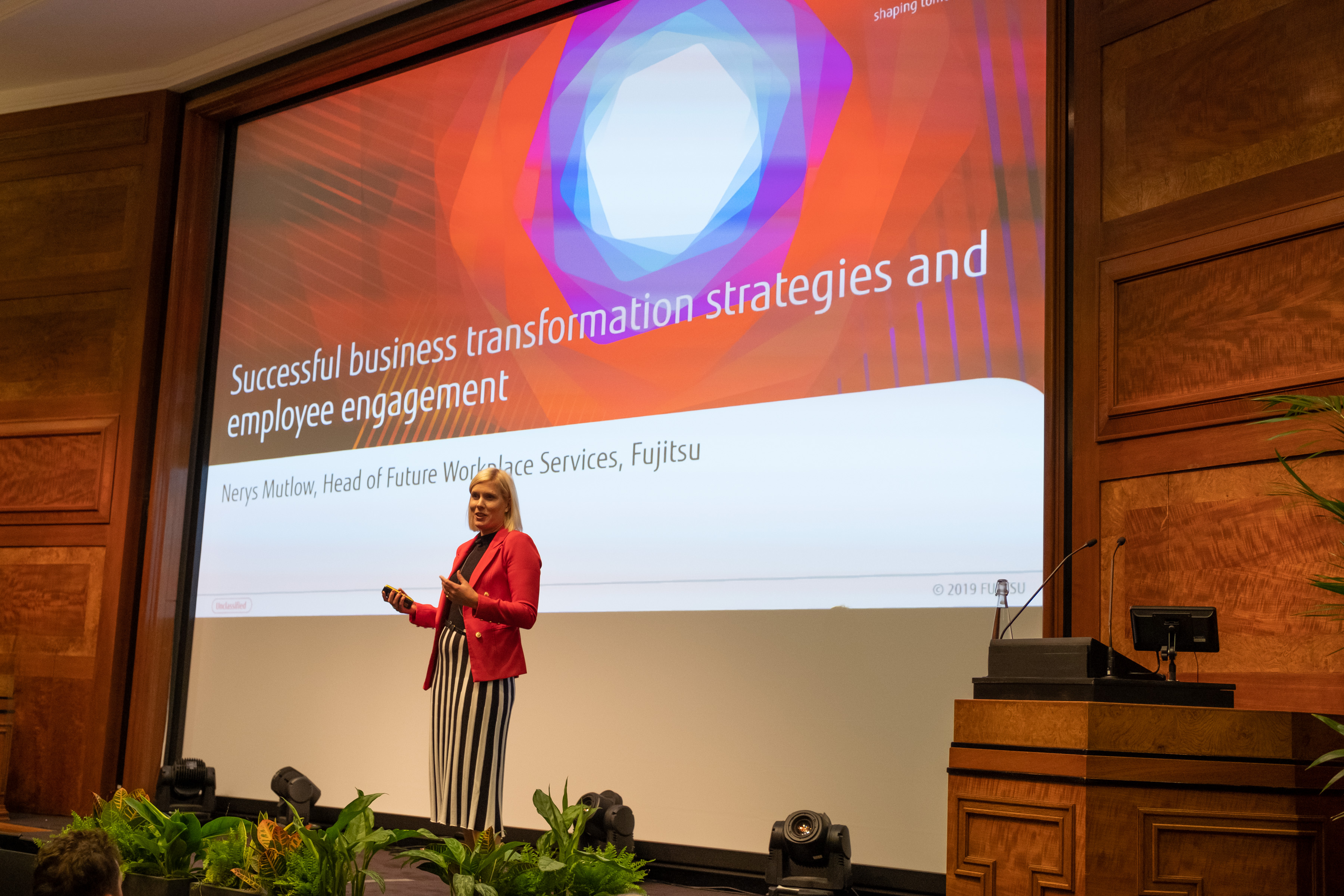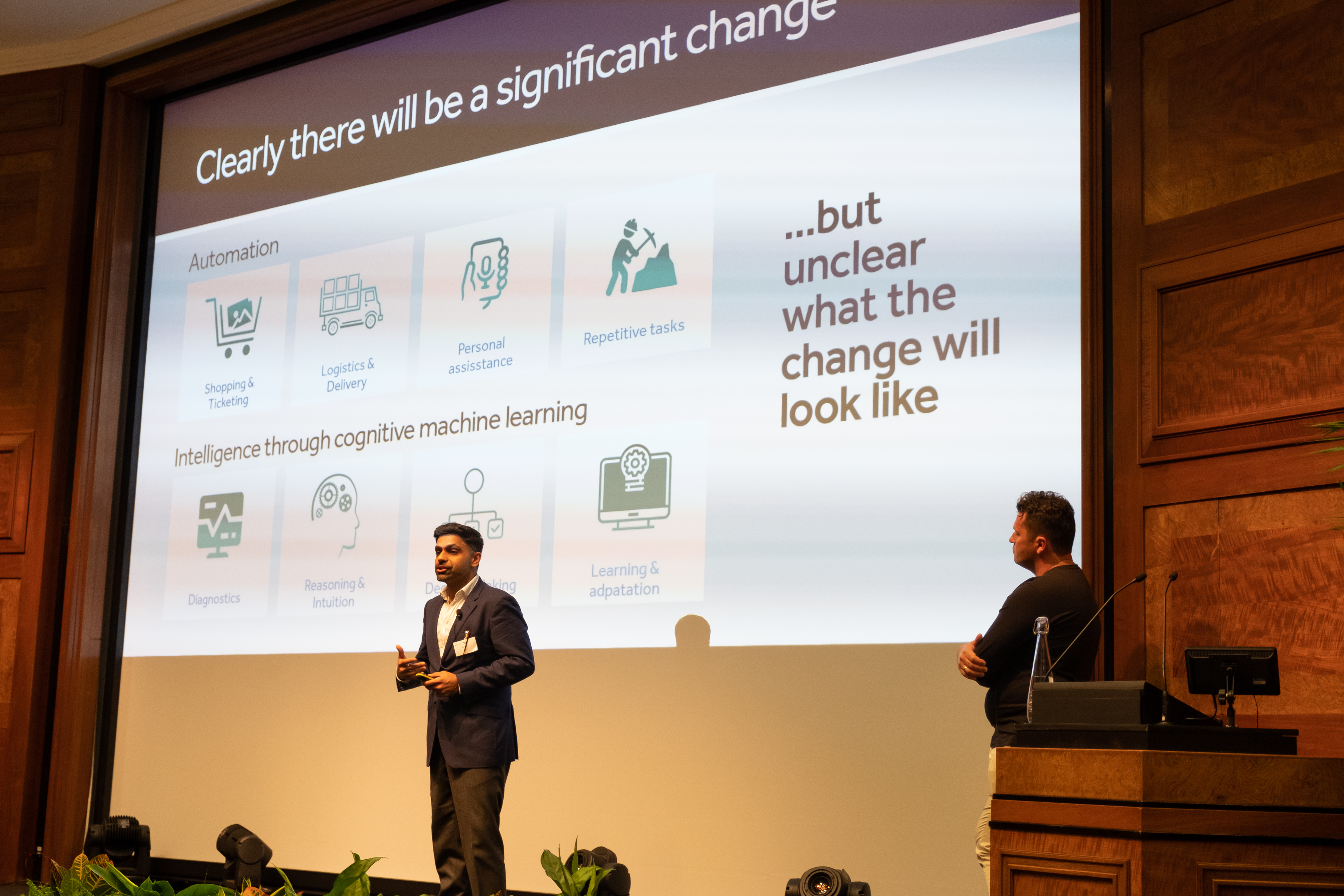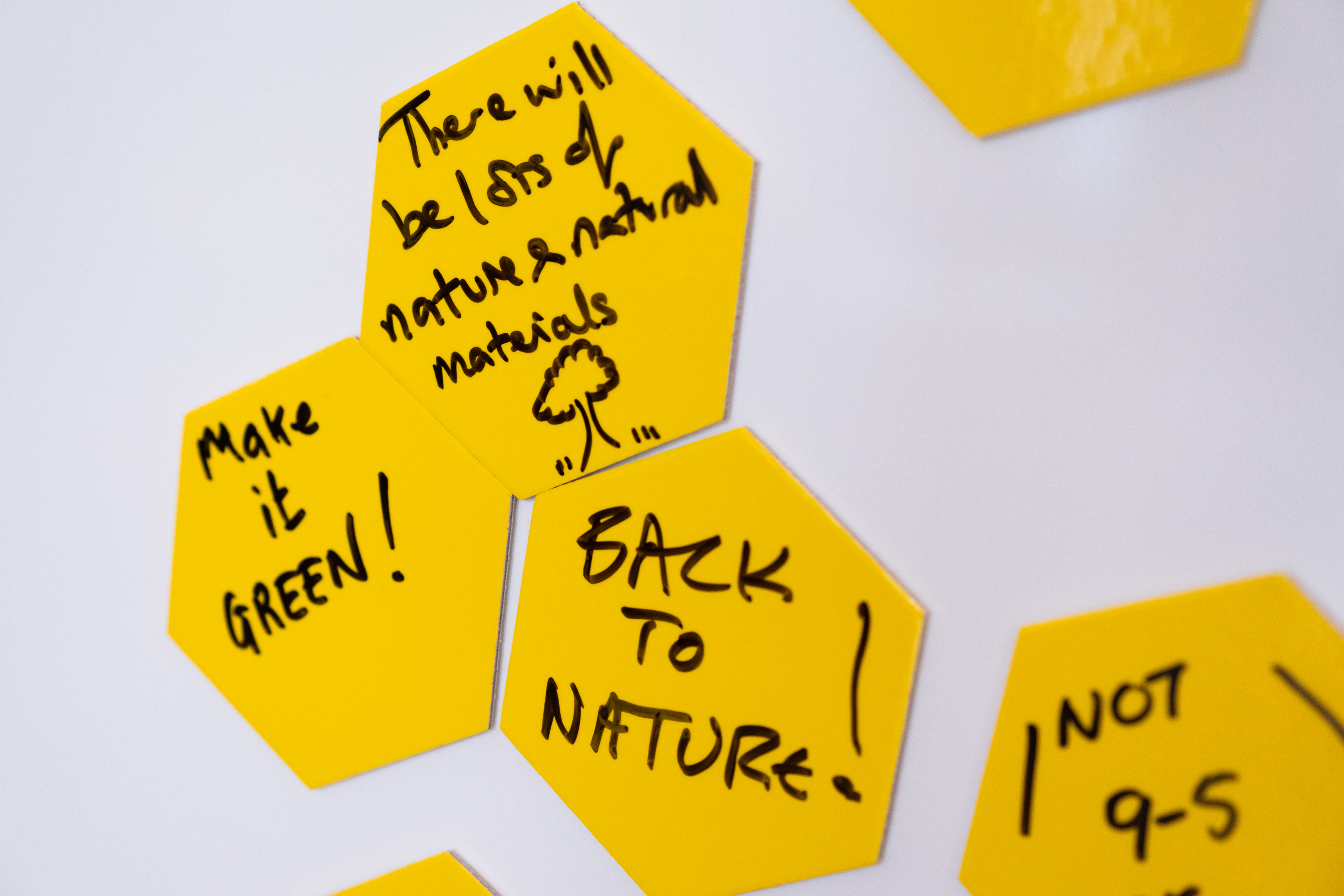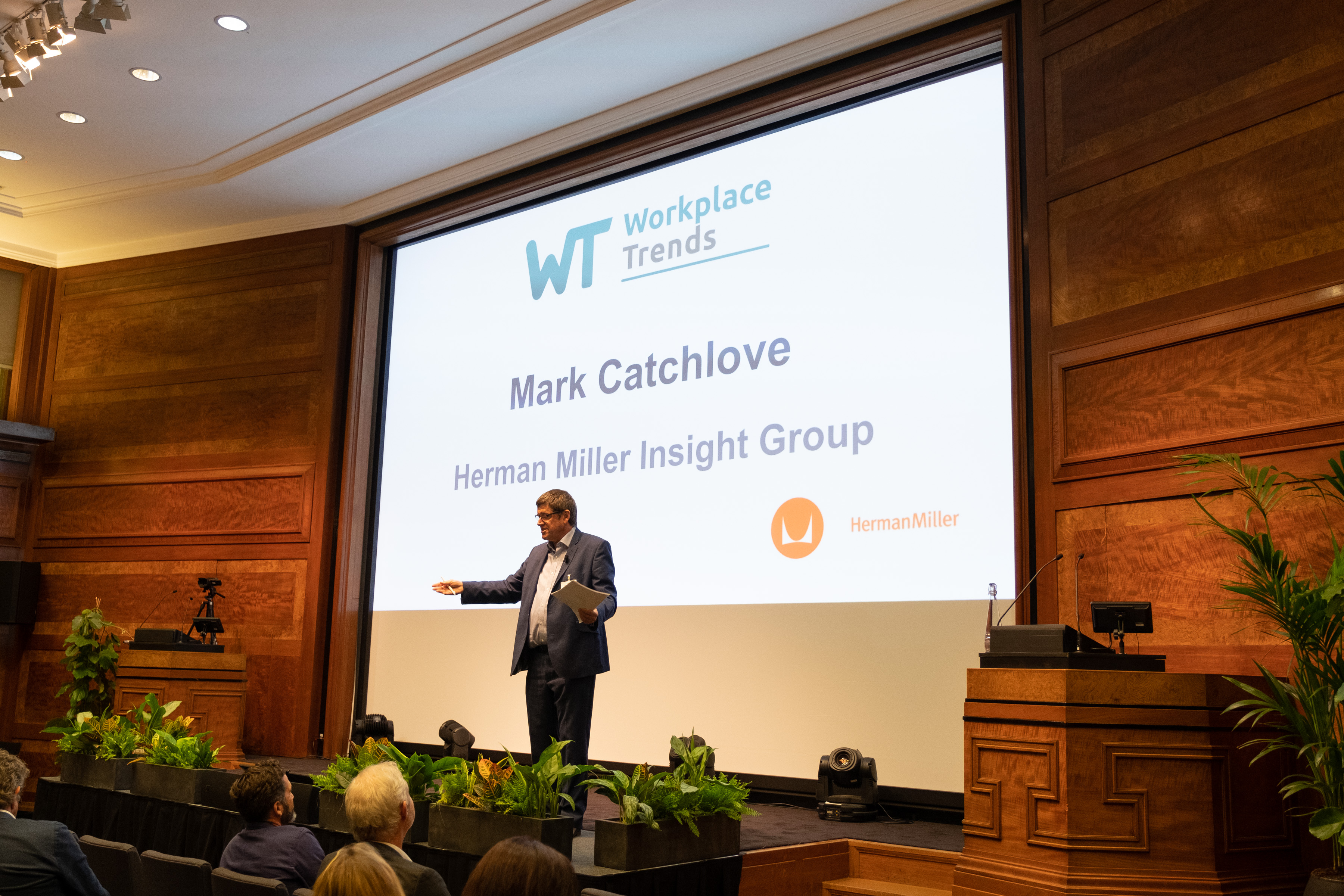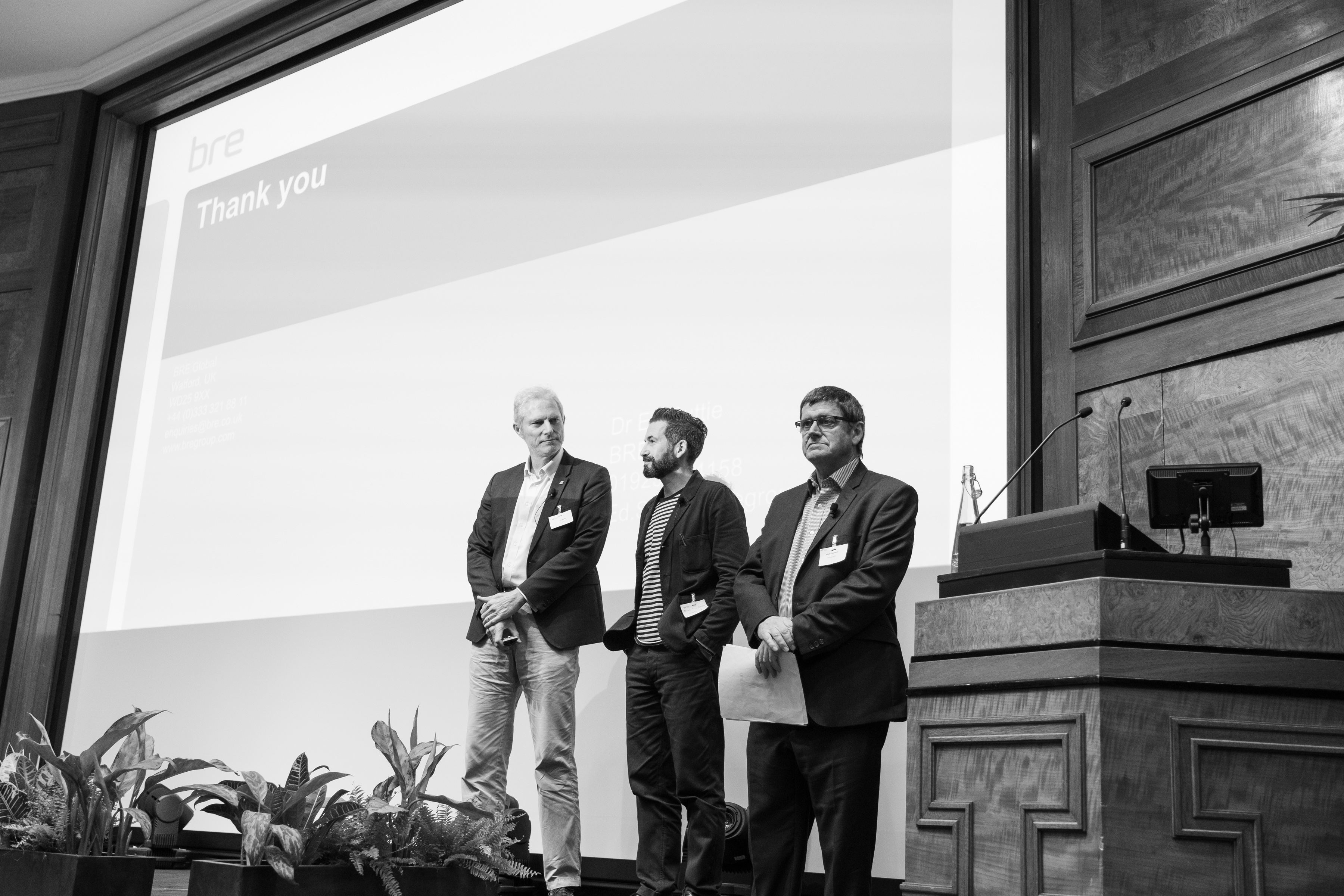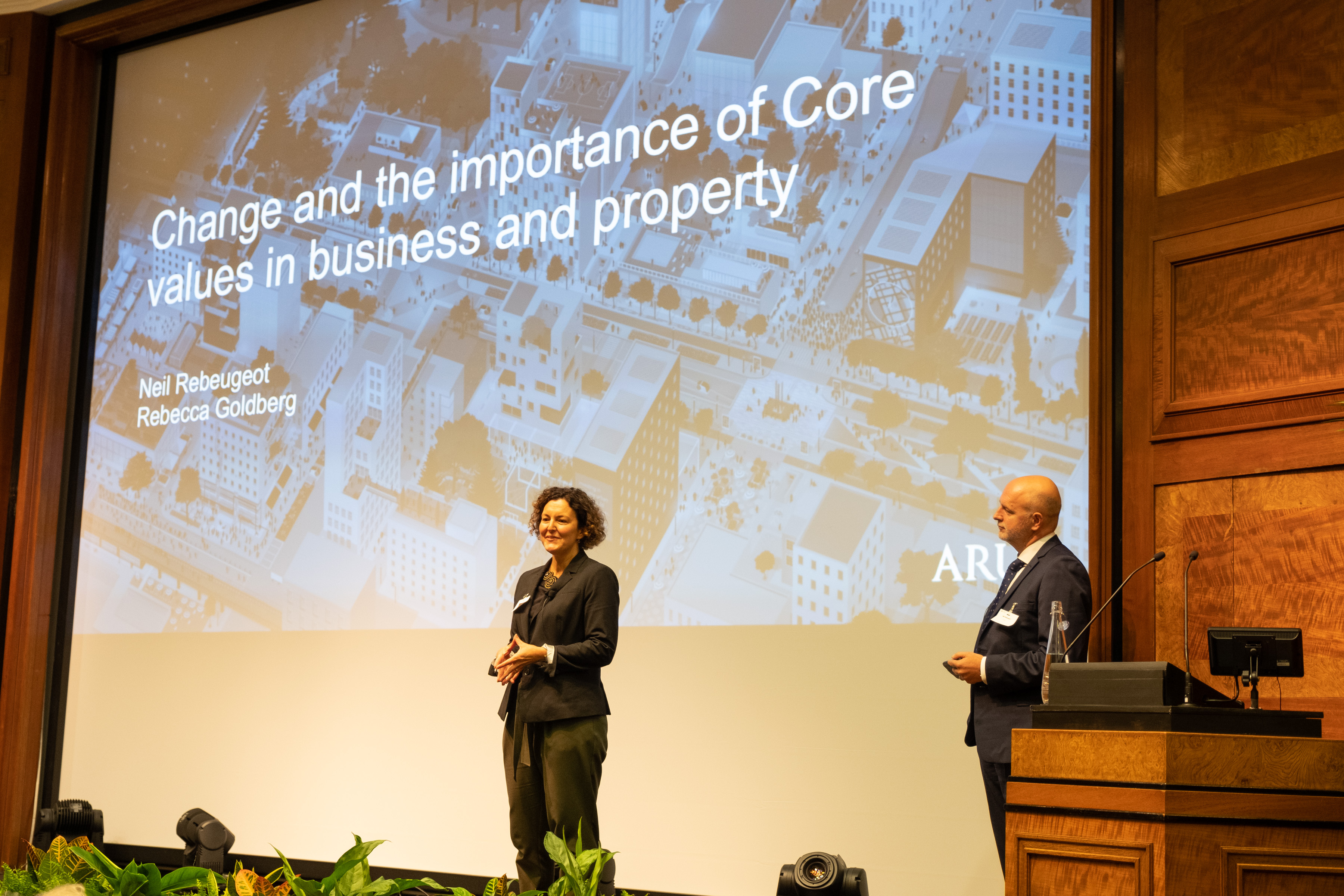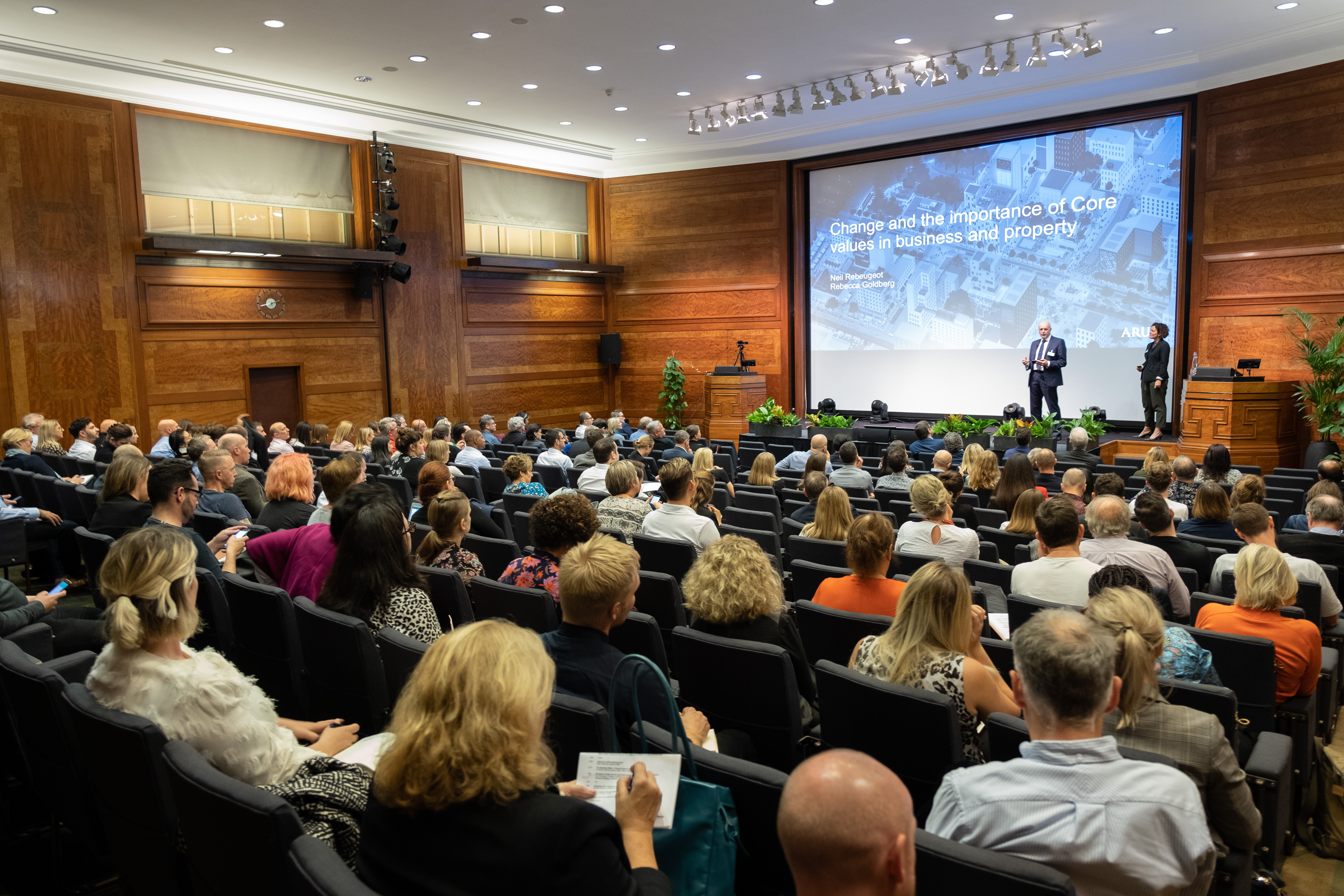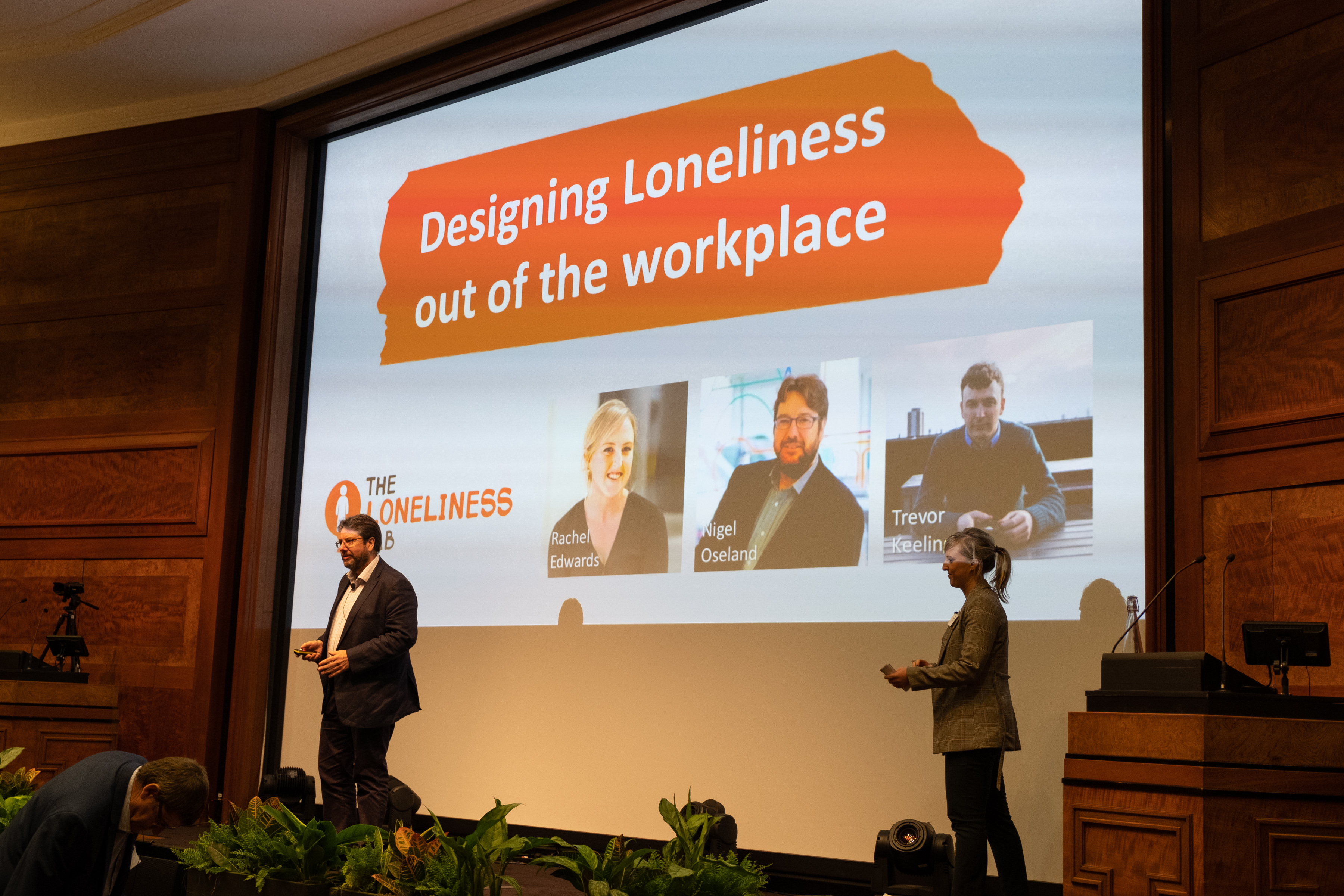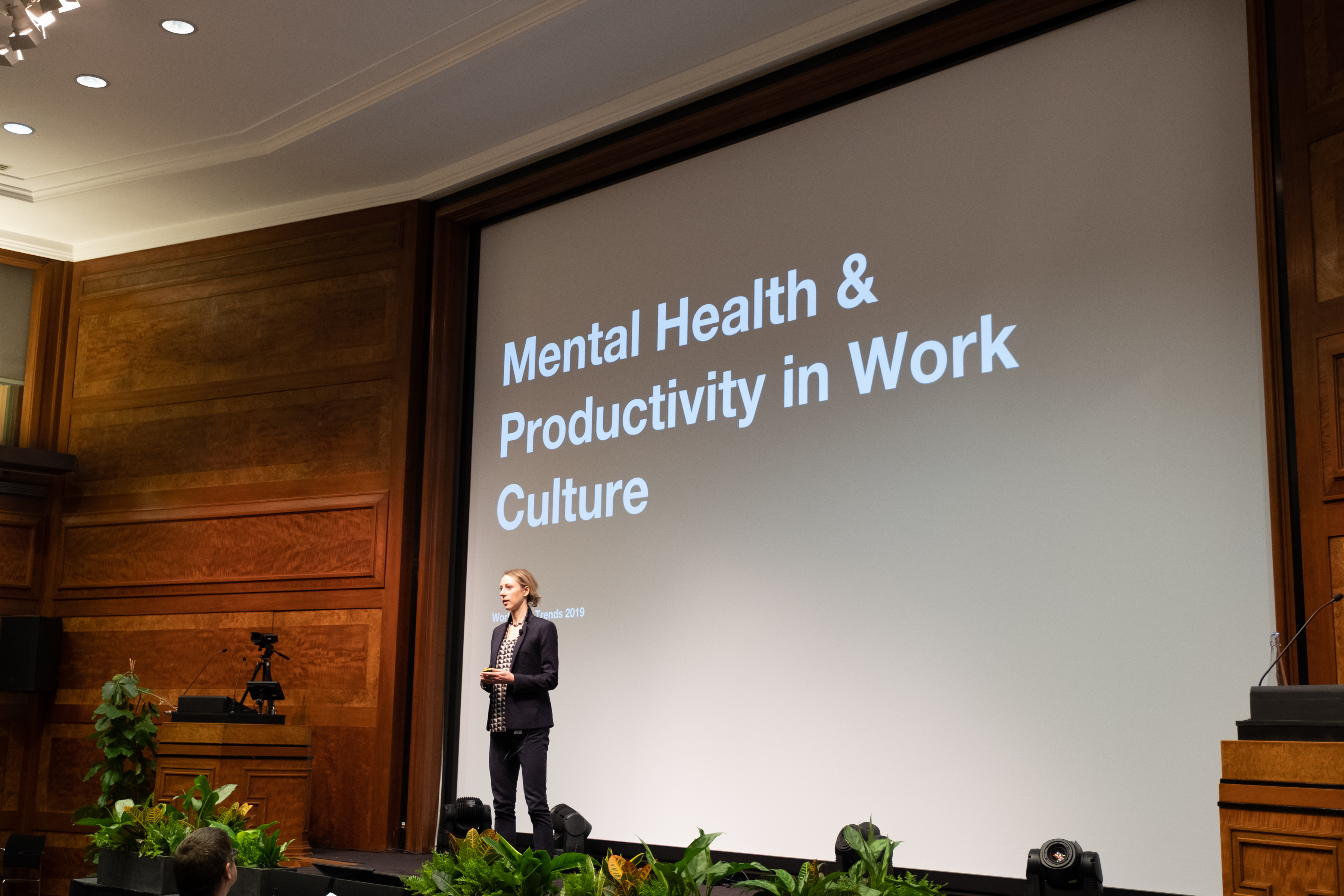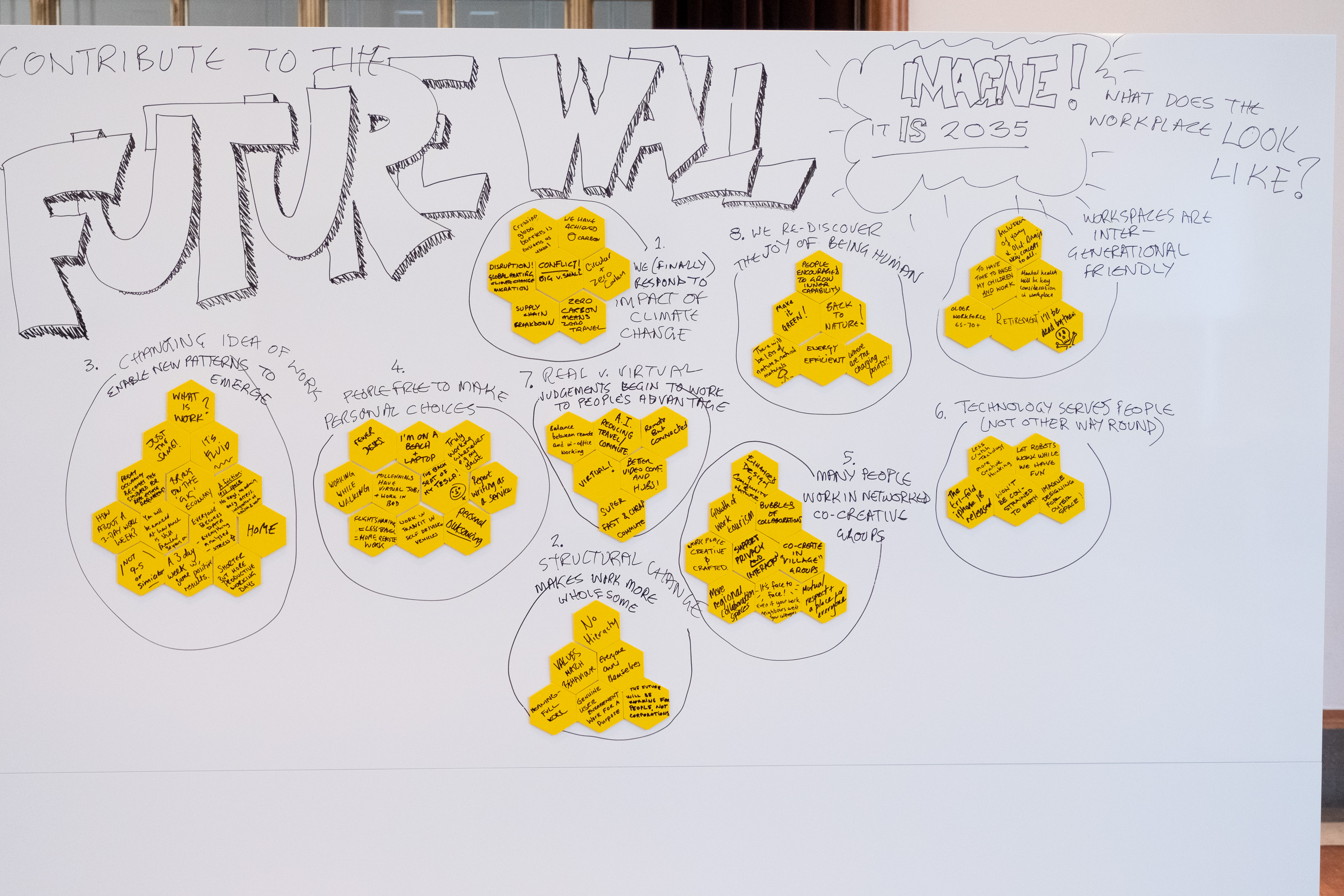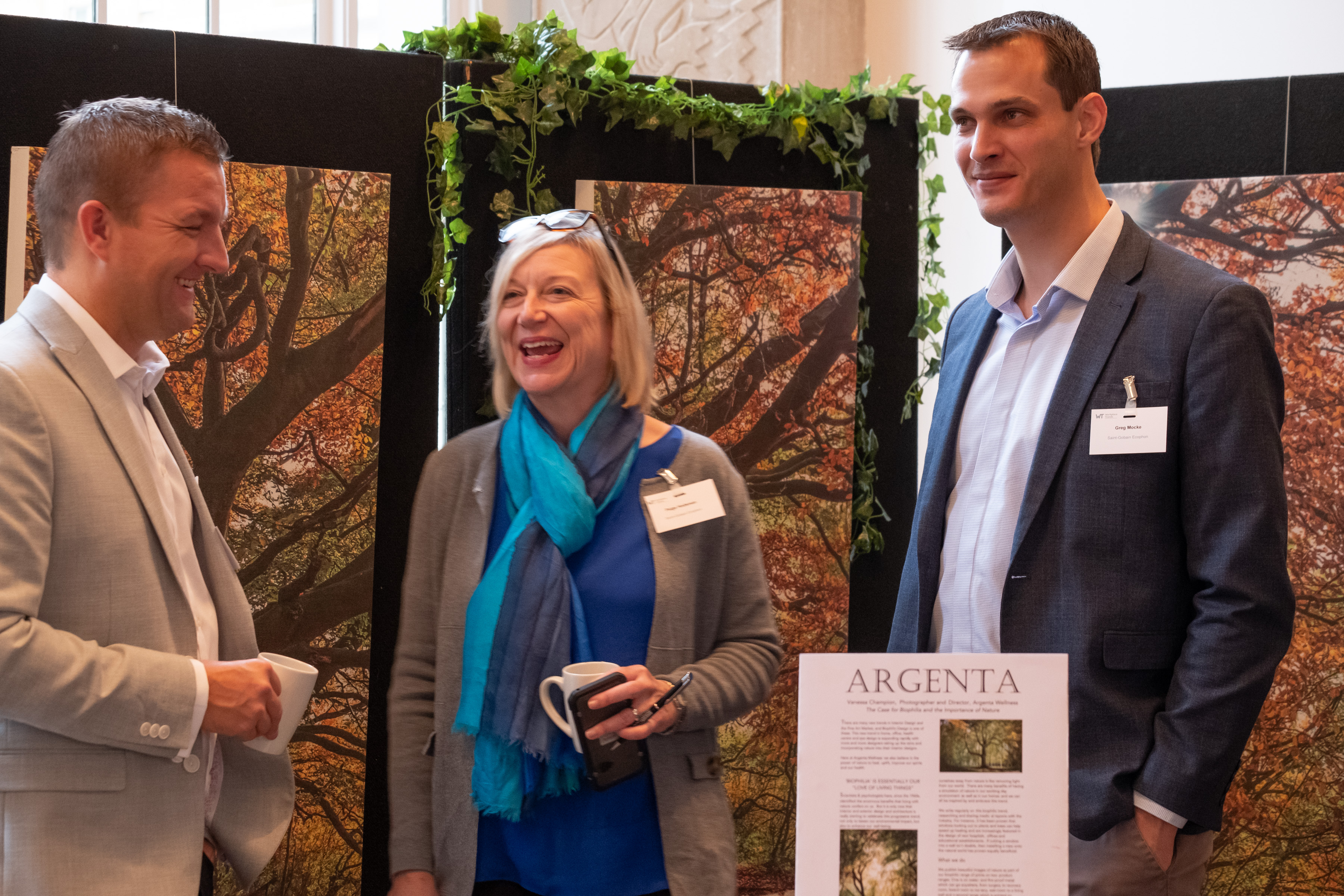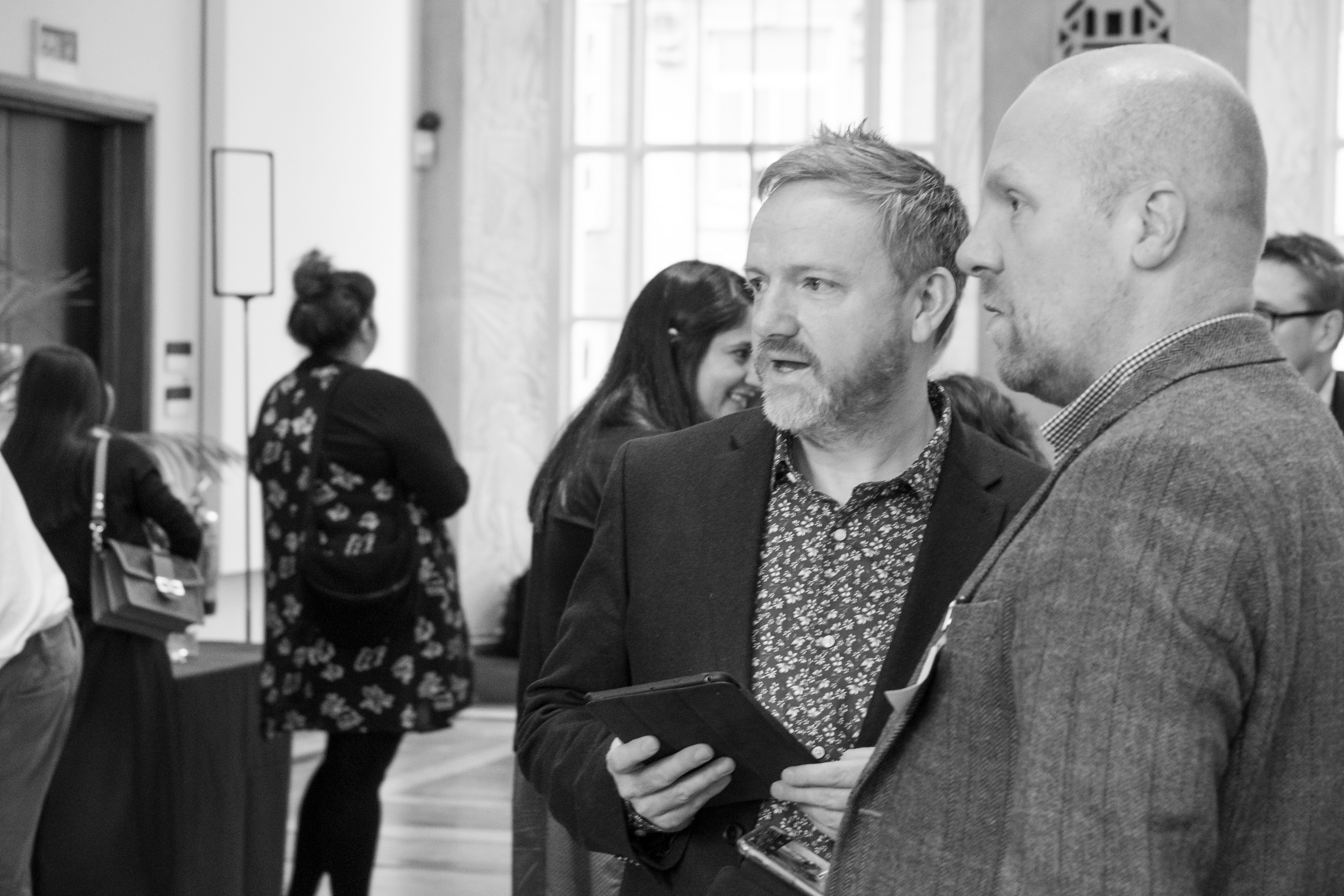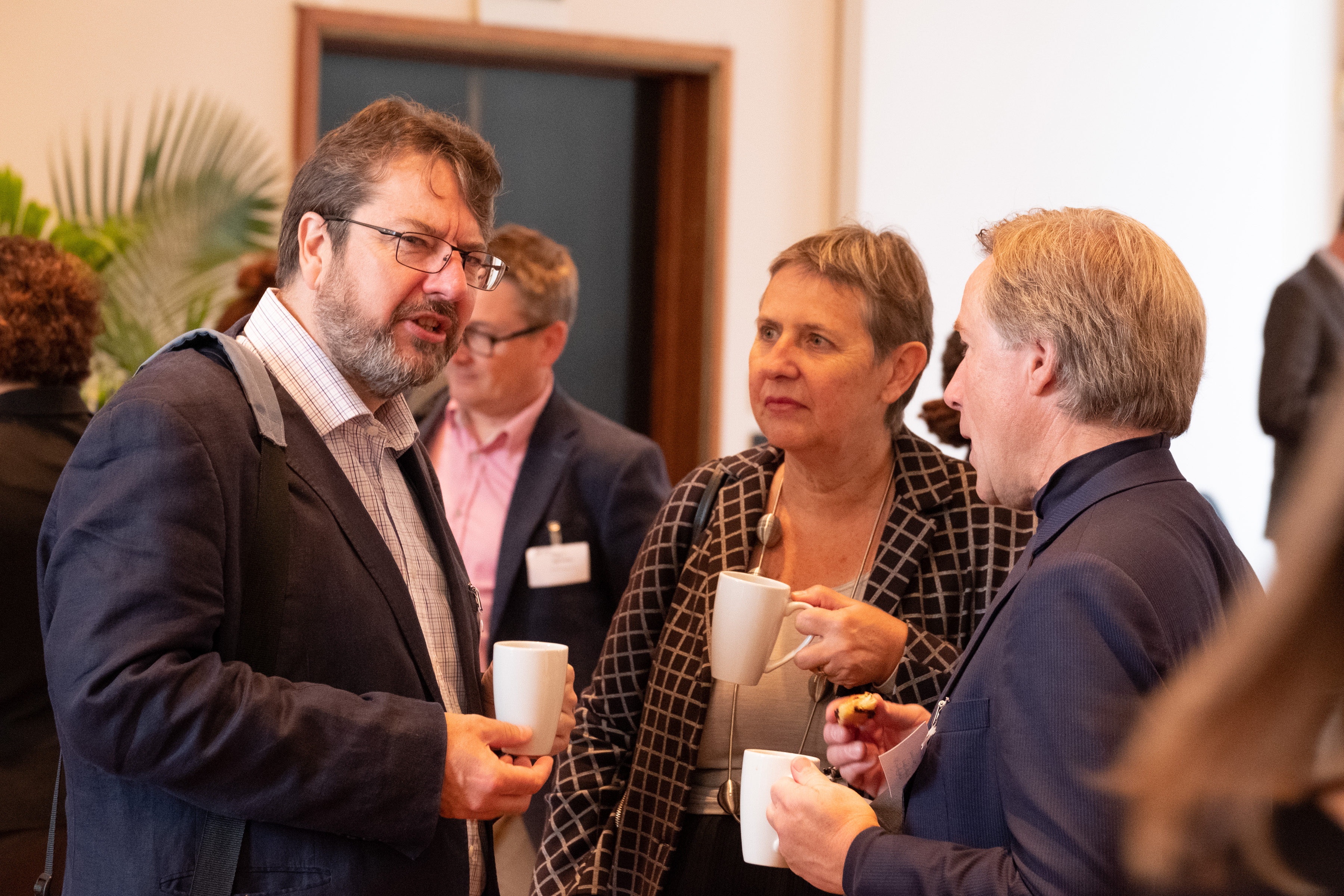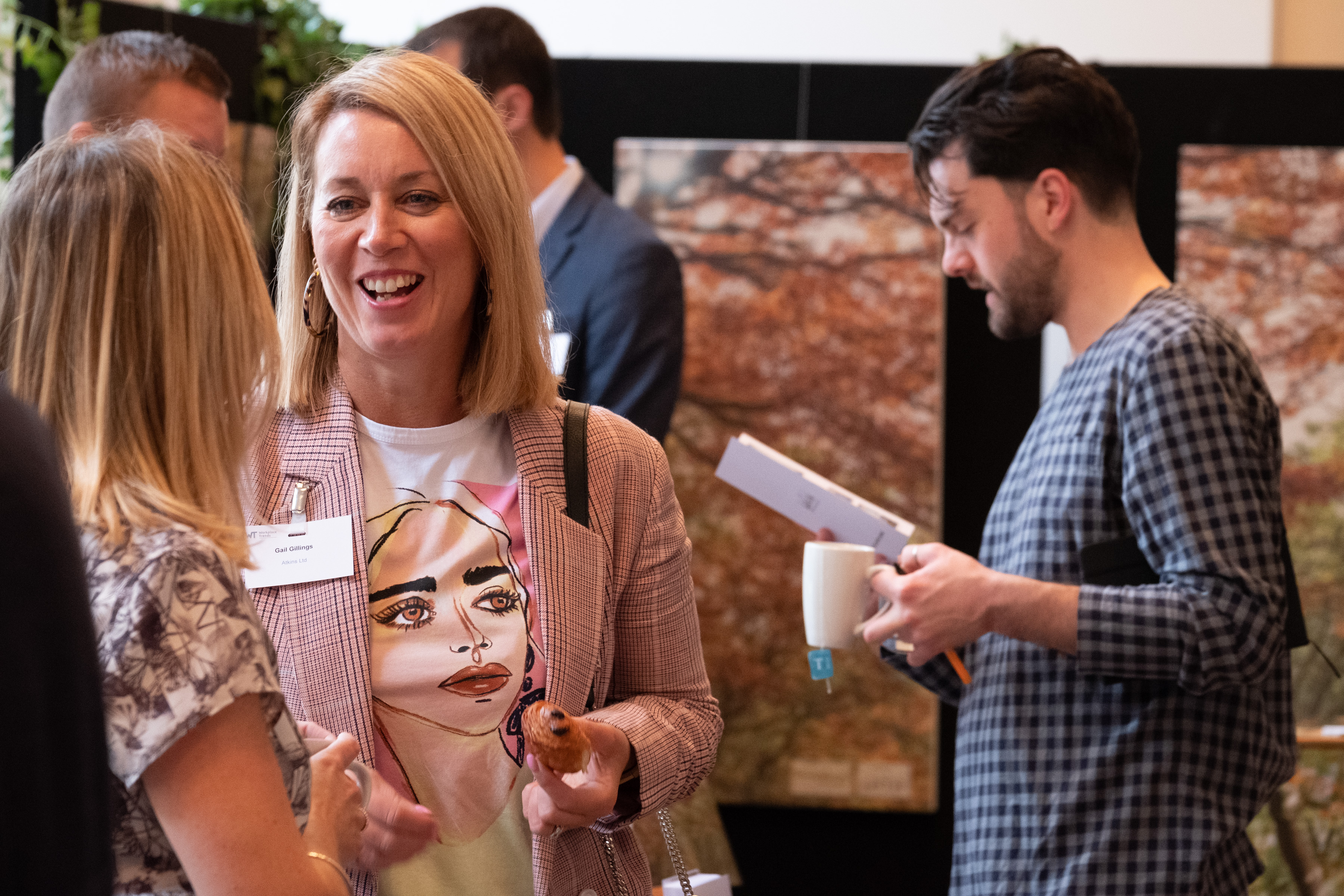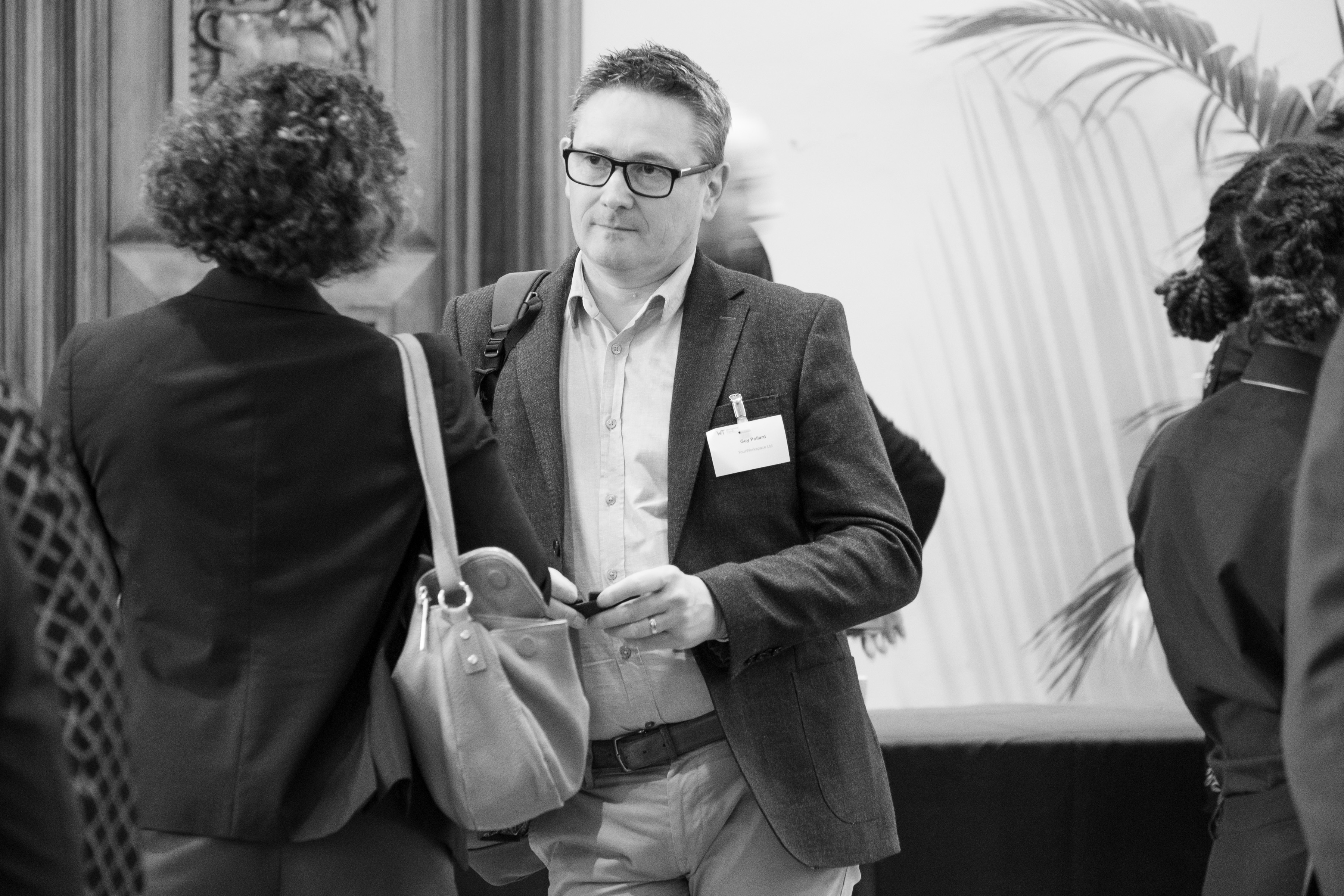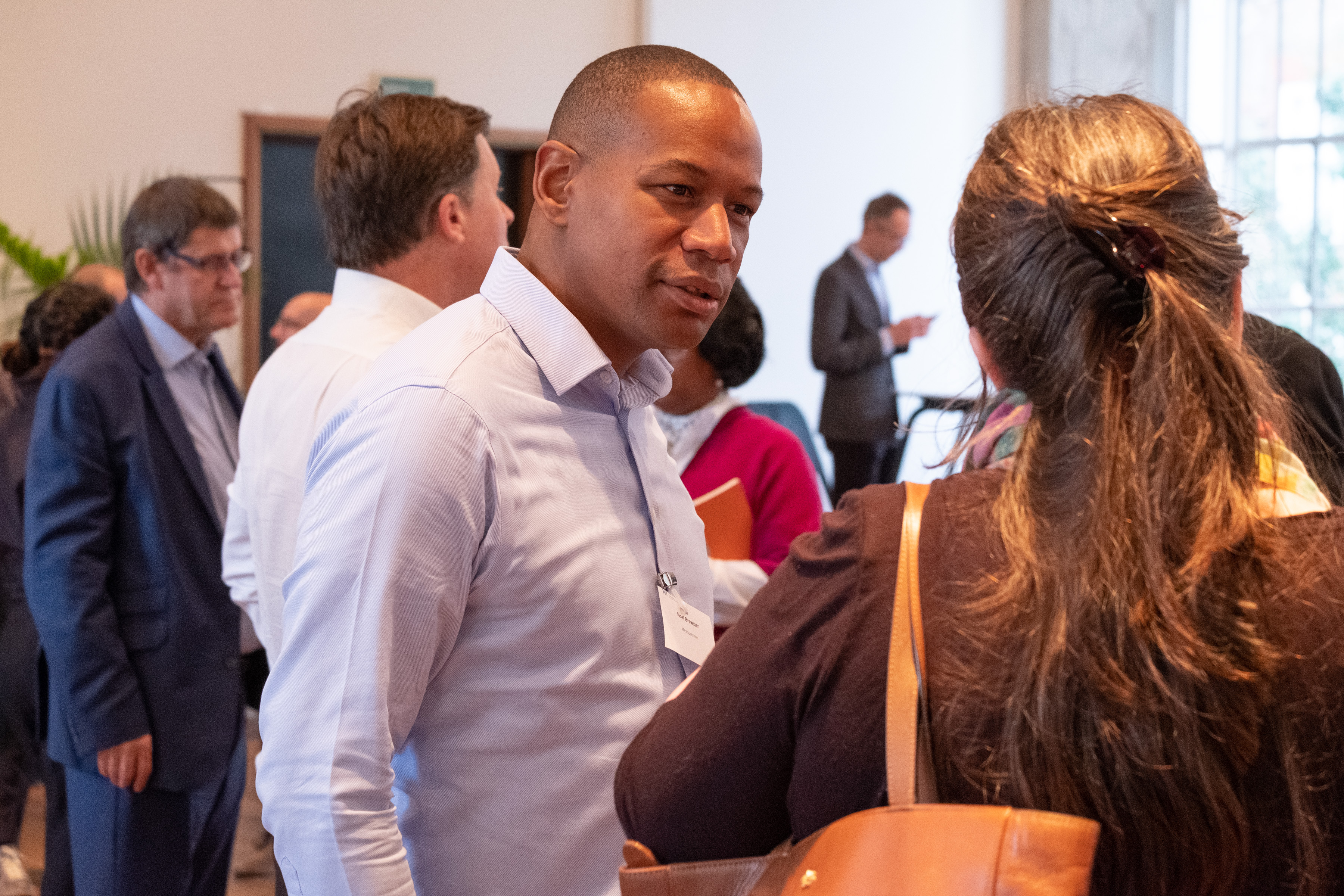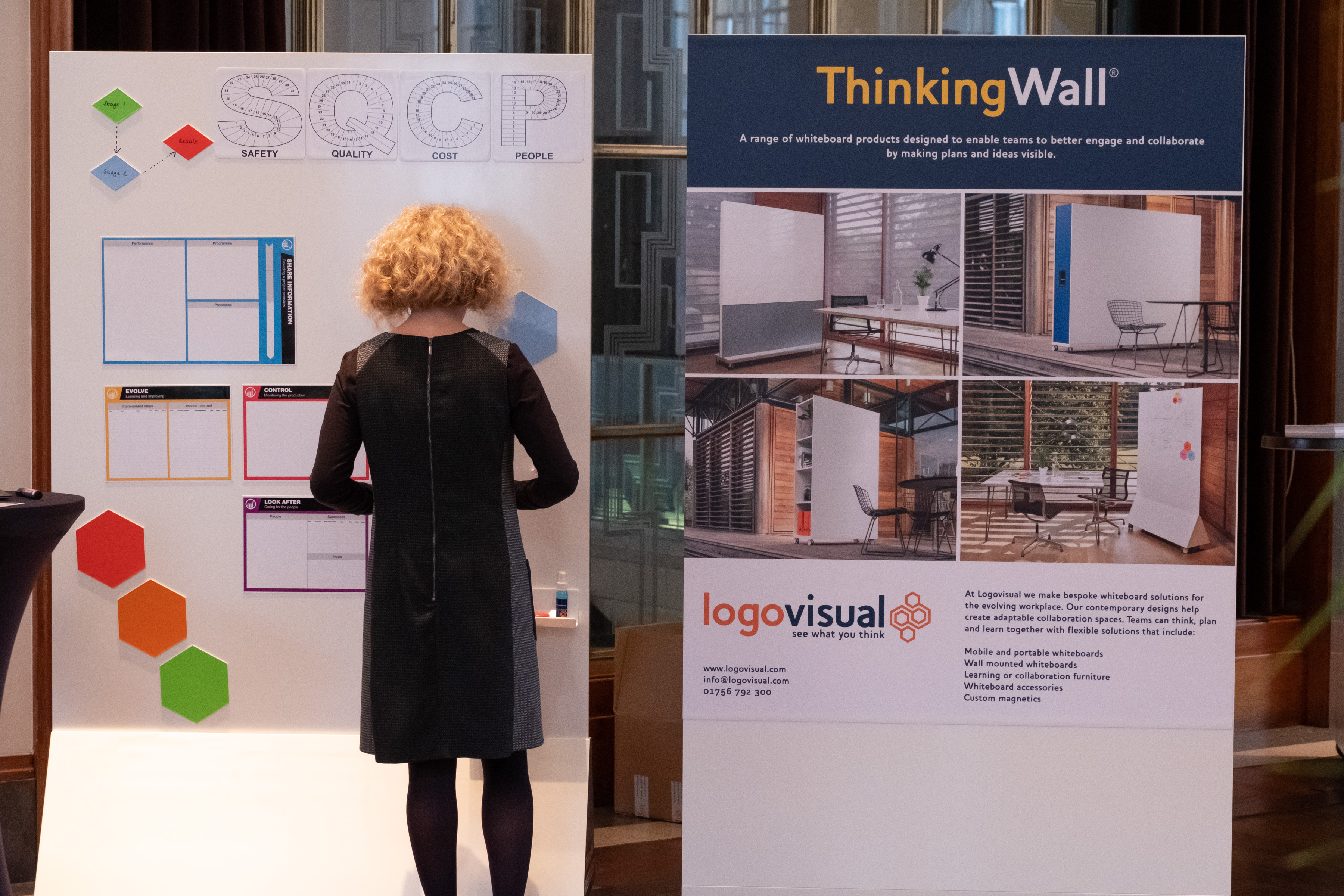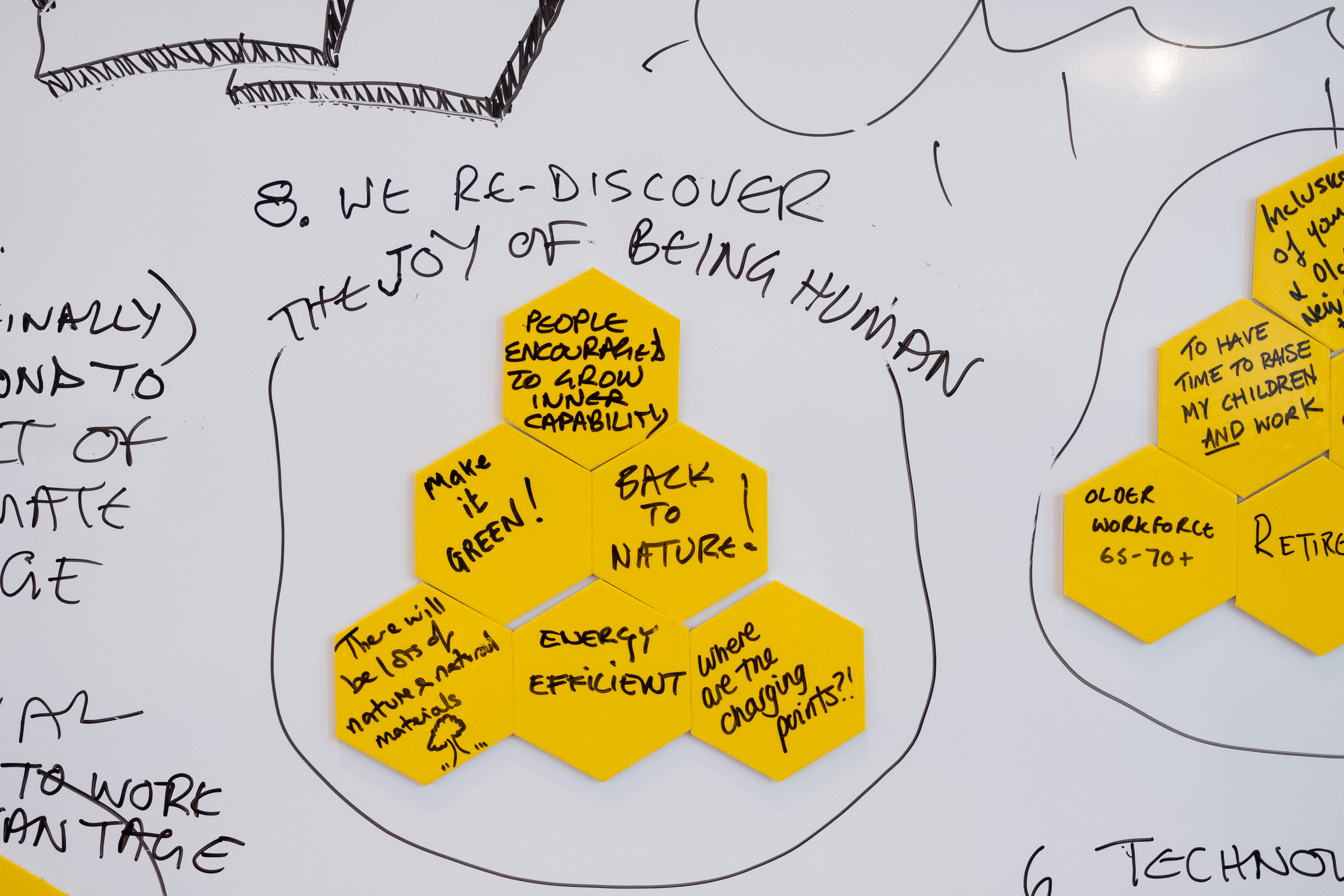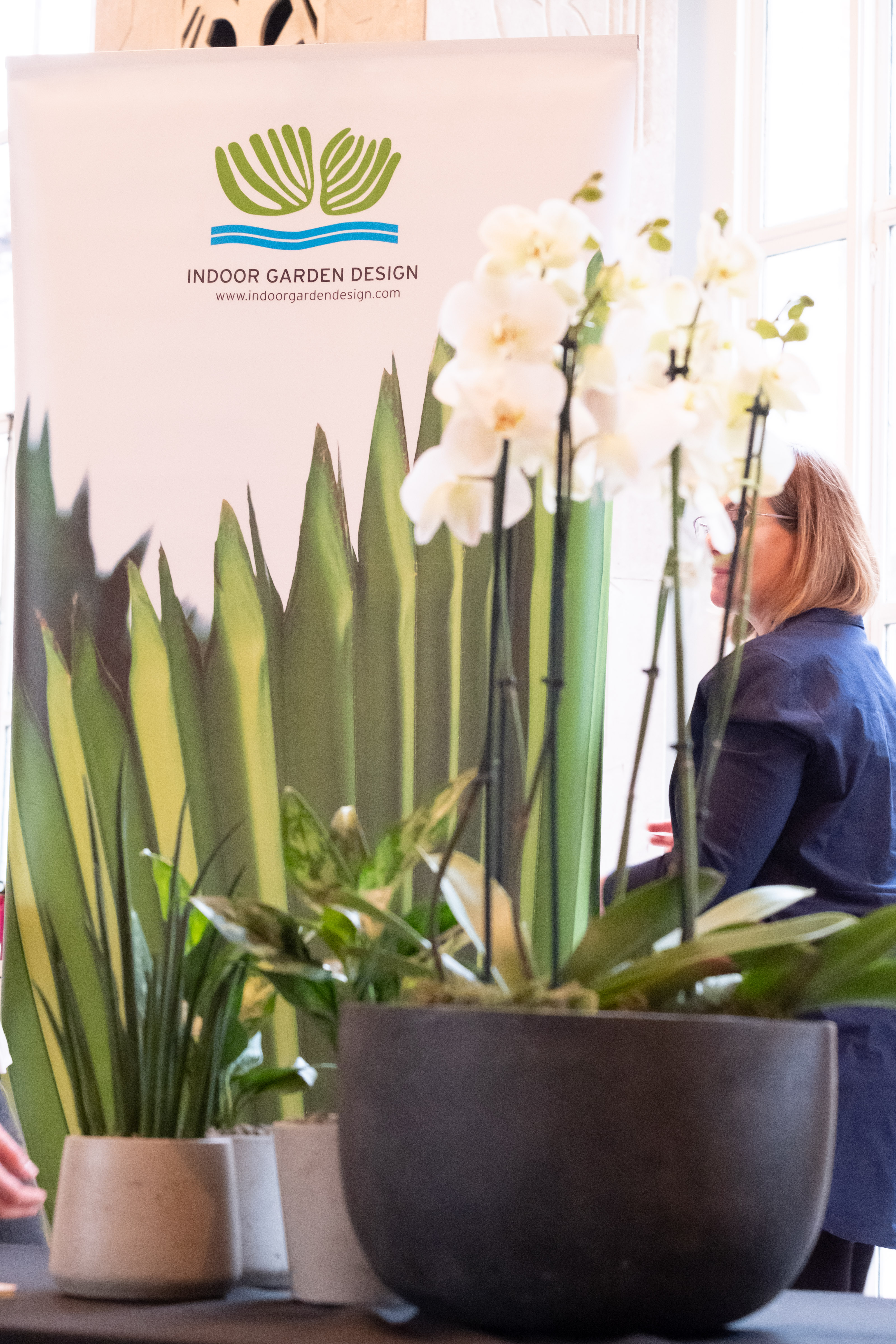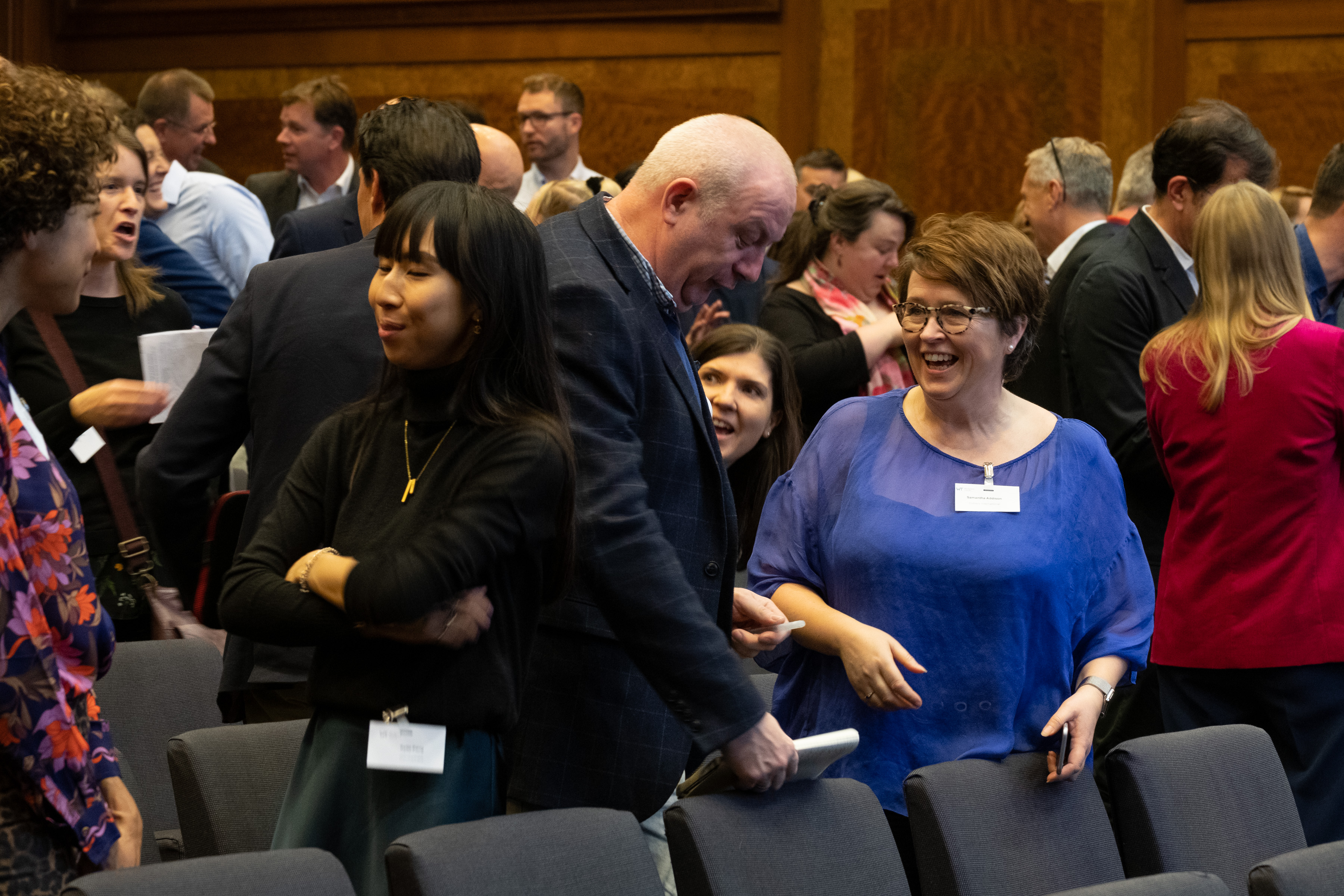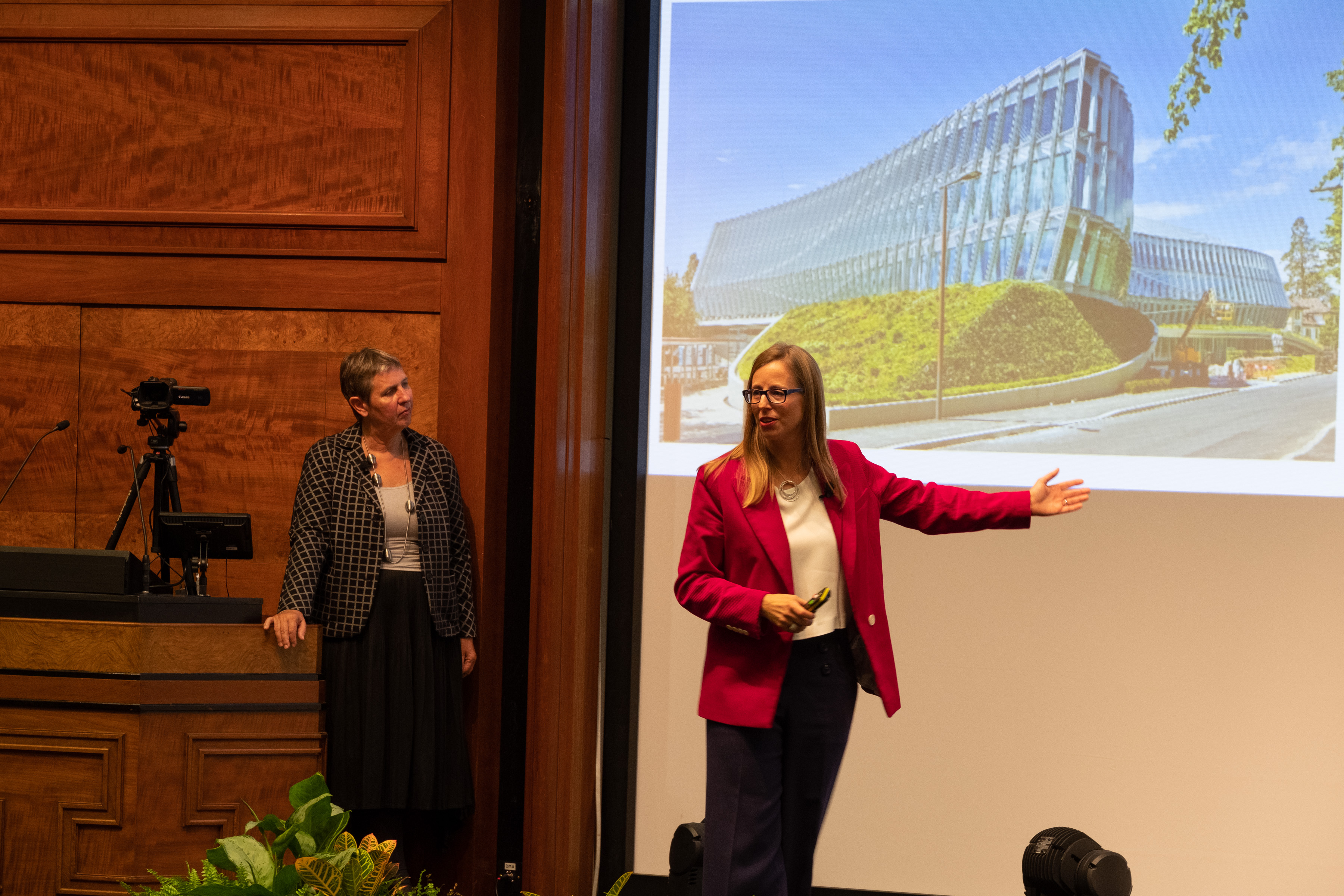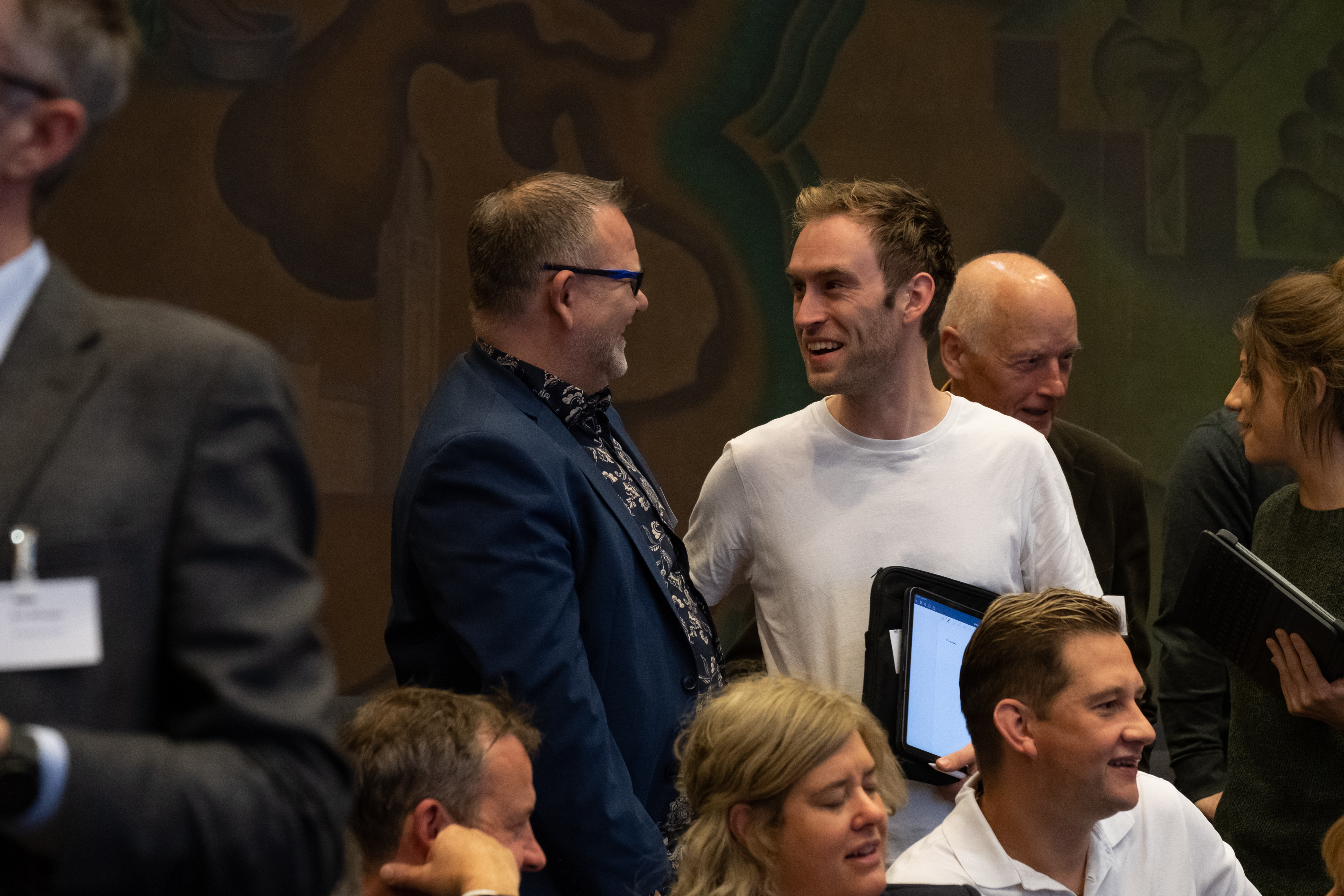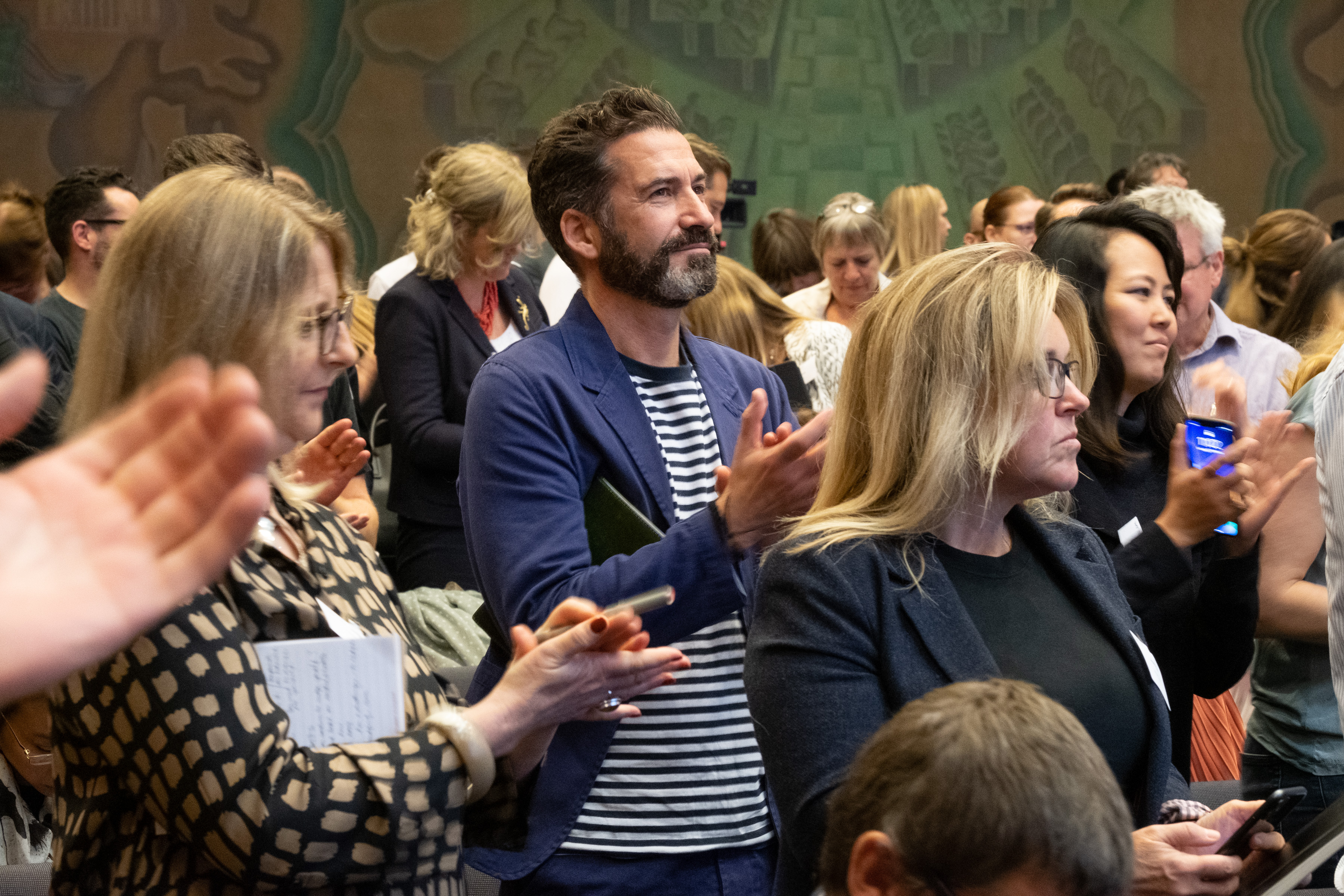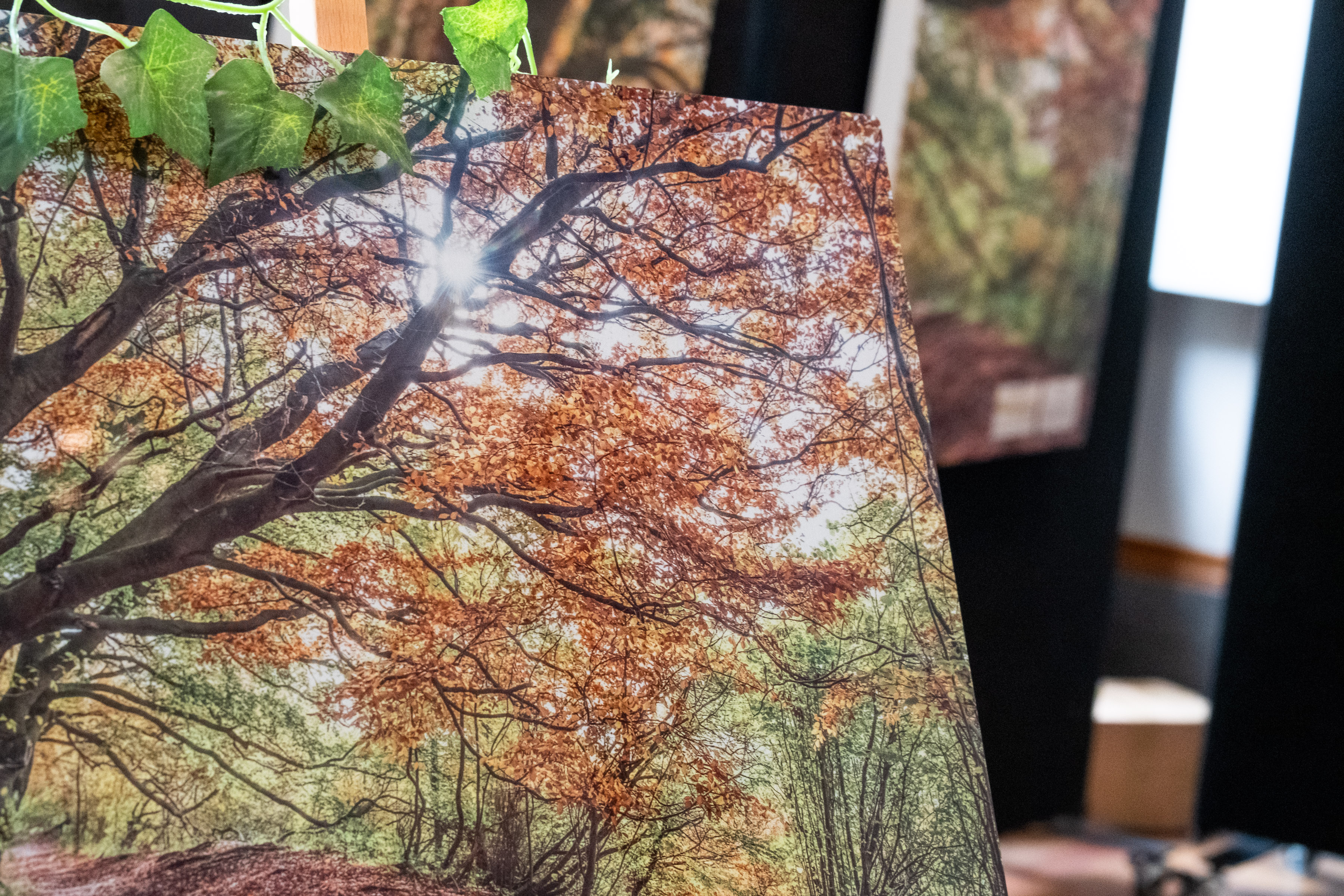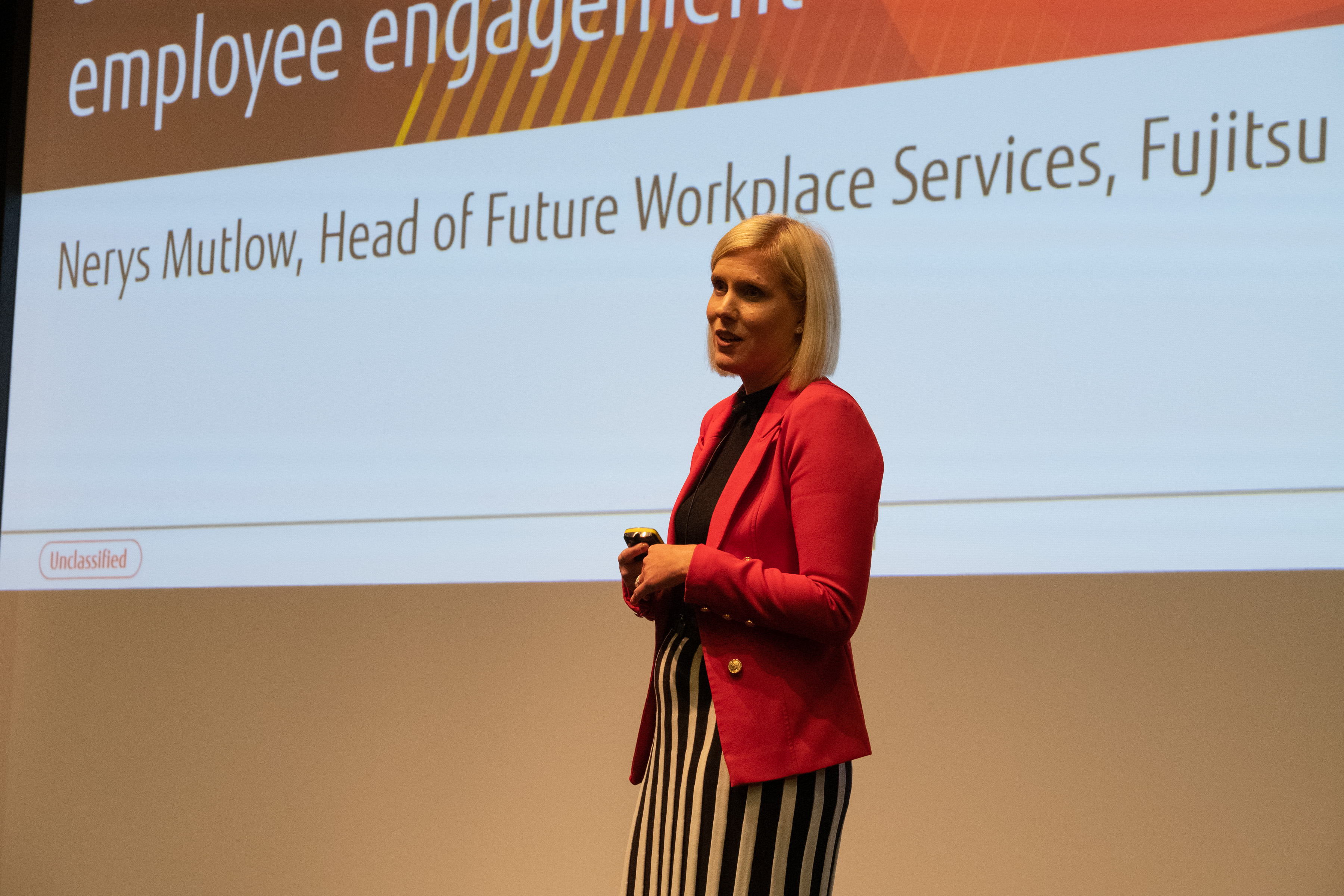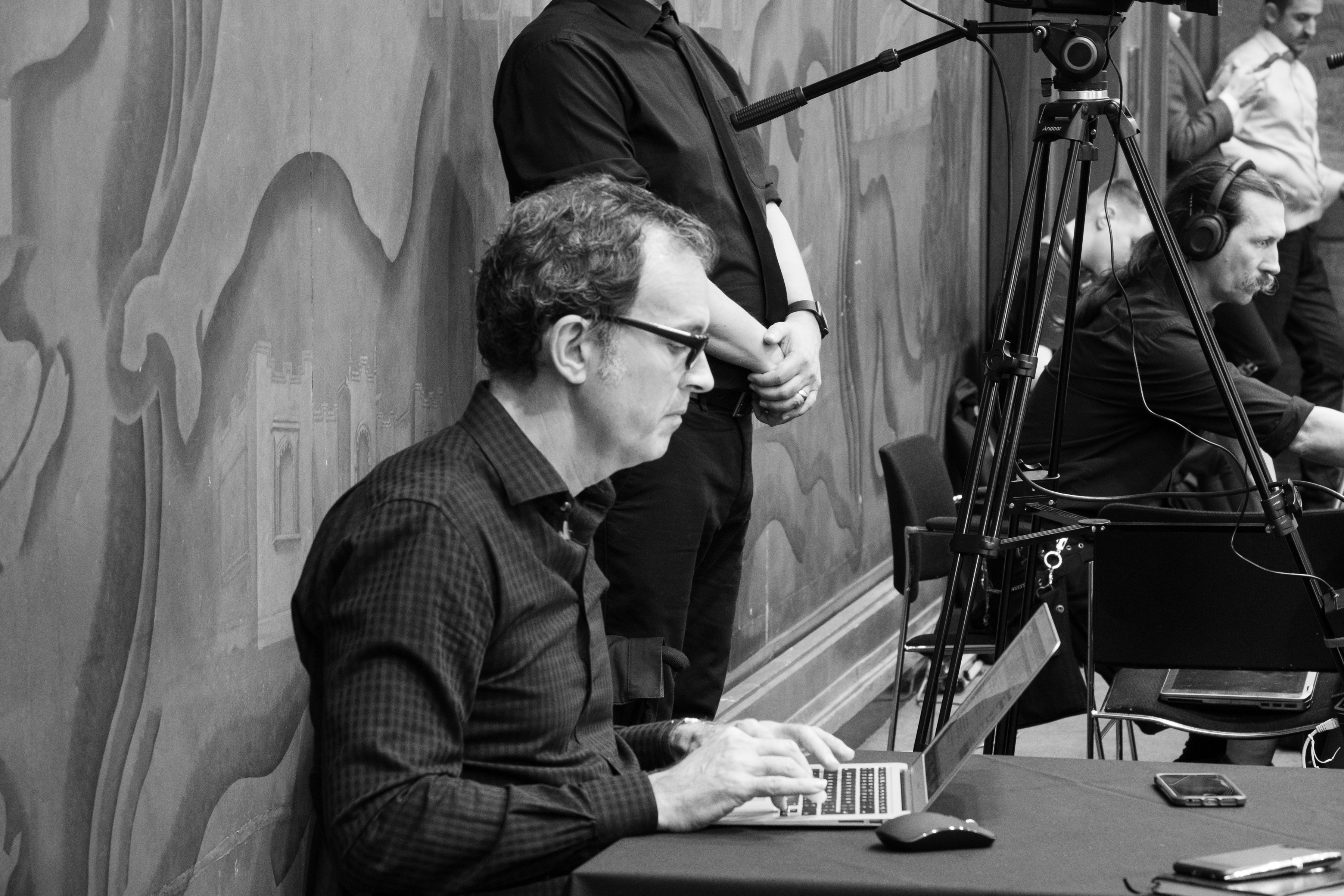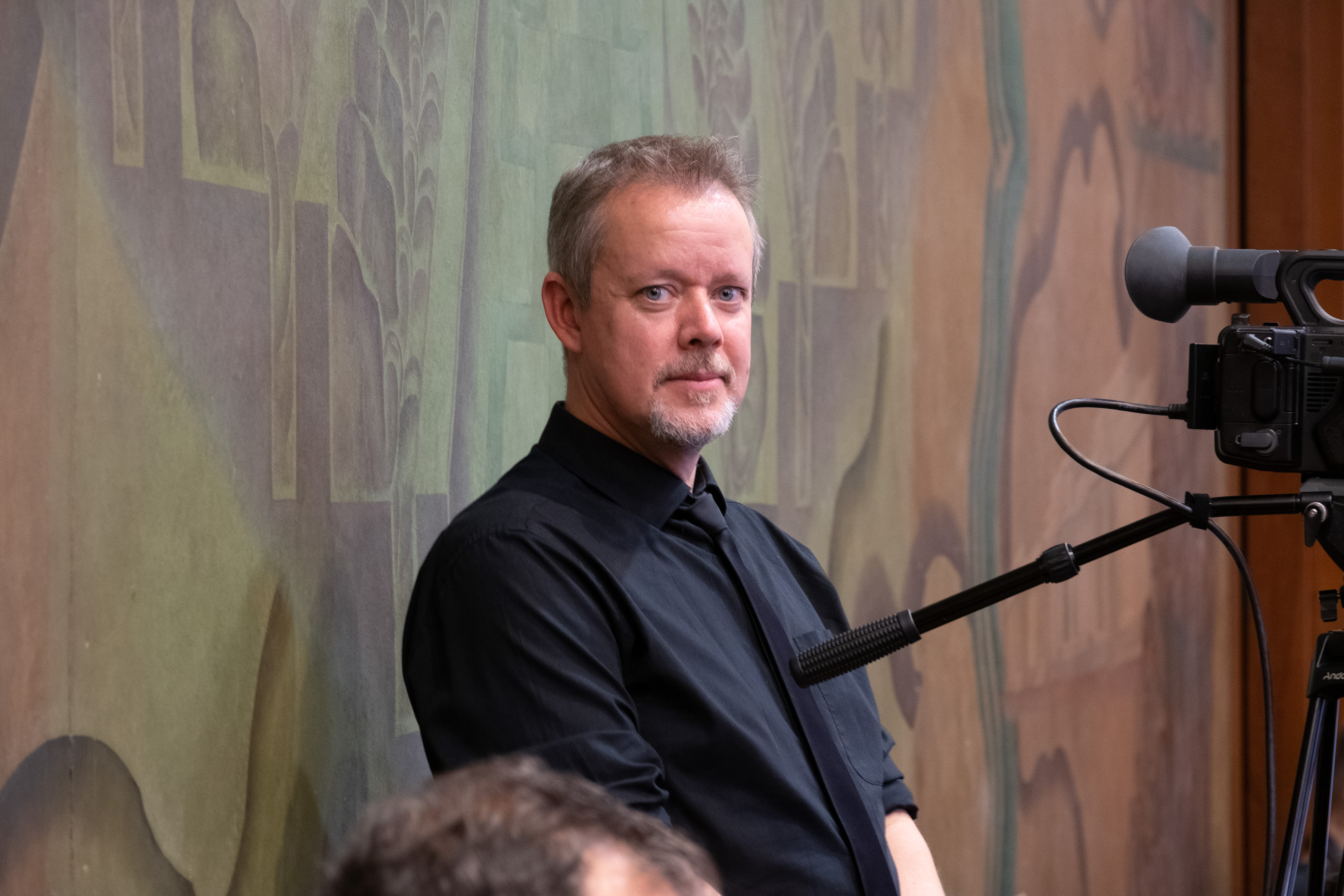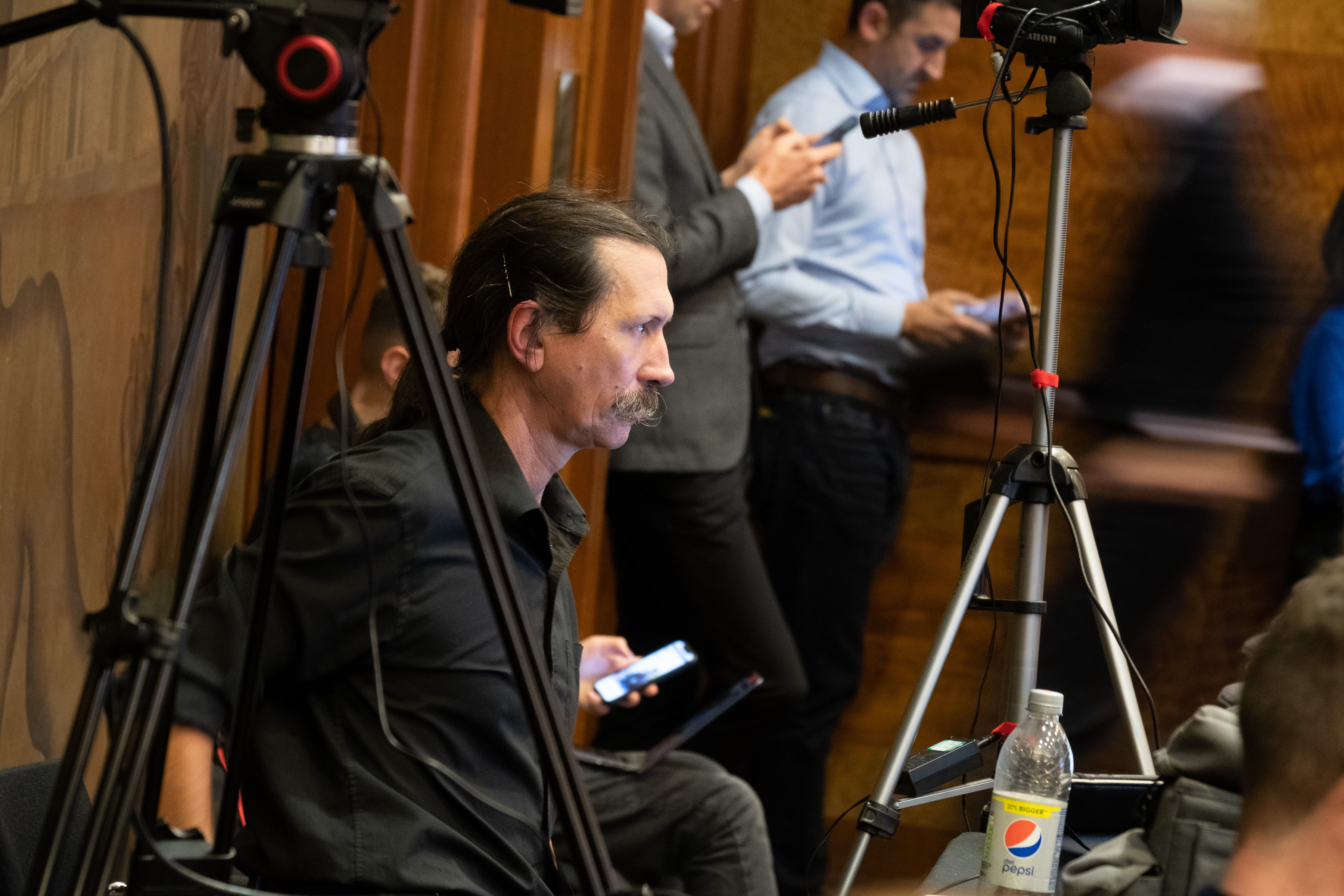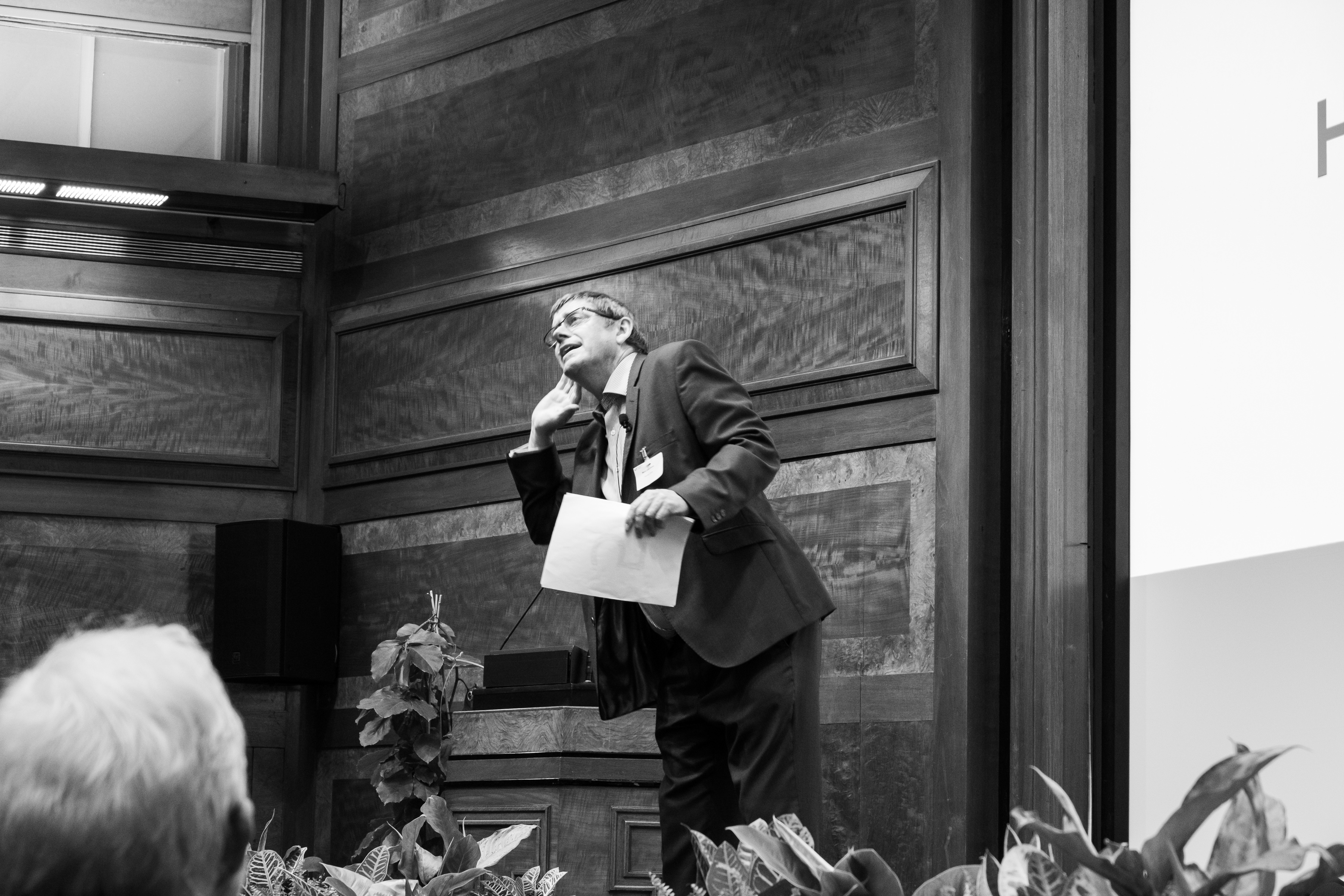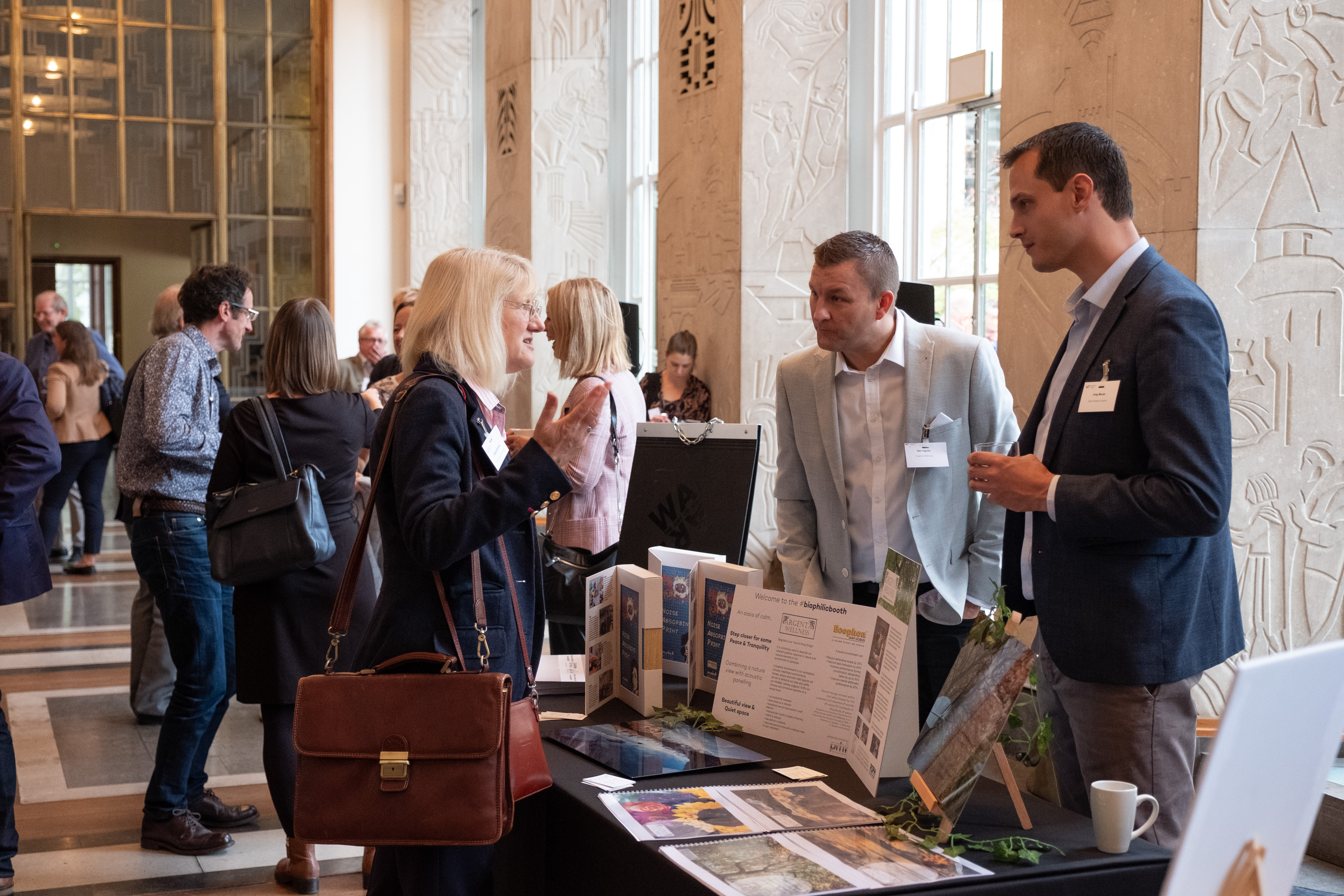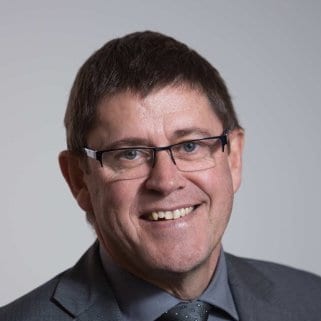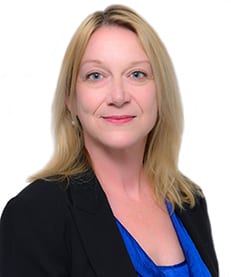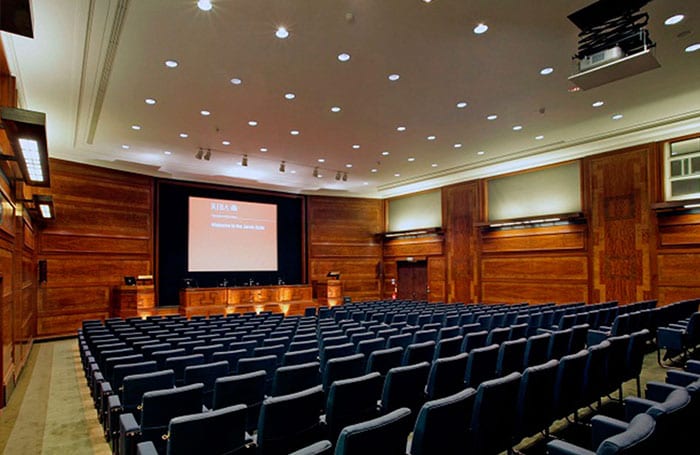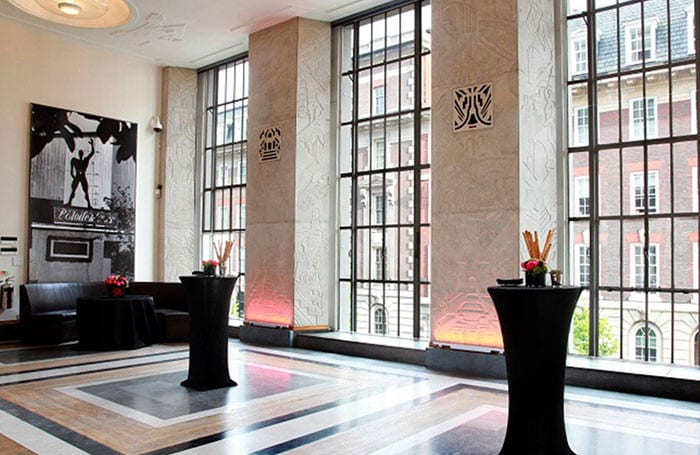London, October 2019
RIBA, 66 Portland Place, #WTLondon
09:15 – 17:00 (BST)

Workplace Trends: Towards a New Era of Work and Workplace
Our flagship conference returned to London this Autumn at the iconic 66 Portland Place, home of the Royal Institute of British Architects.
Around 200 workplace directors, managers, consultants, change managers, architects, designers, and suppliers gathered on 15 October.
Podcast Special
Dan Moscrop of the workplace podcast, Spacecraft, managed to chat to many of our presenters on the day. Listen to the podcast here.
Futures Wall: IMAGINE it is 2035 – What does the workplace look like?
The results from our conference Futures Wall are in! Read the full blog post about it by our friends at Logovisual.
& our Media Partners
Conference Gallery
Vanessa Champion of Argenta Wellness very kindly brought her camera along to the conference! Here are just a few of the shots from the day.
Our programme
0830 Registration, coffee, pastries
0915 Morning chair’s welcome and introduction Paige Hodsman, Saint-Gobain Ecophon
0930 The Corporate Tribe: Re-humanizing the Workplace and Surviving the Digital Transition Kilian Keller, Electrolux
A digital-era rediscovery of anthropologic basic requirements
- The clash of the digital revolution and human condition: What your next generation employees will be like.
- Collaboration: What you as an employer will have to do to have any future.
- Tribe, Clan, Ritual: How to apply archaic templates at work as an antidote to digitization collateral damage – In work behaviour, IT, Space.
Unprecedented change comes with unprecedented risks. After the digital revolution, re-humanizing the workplace should be a major component of any enterprise strategy, not only for success, but for survival. The solutions, the ambitions, will have to aim higher than just a bit of Activity Based Working.
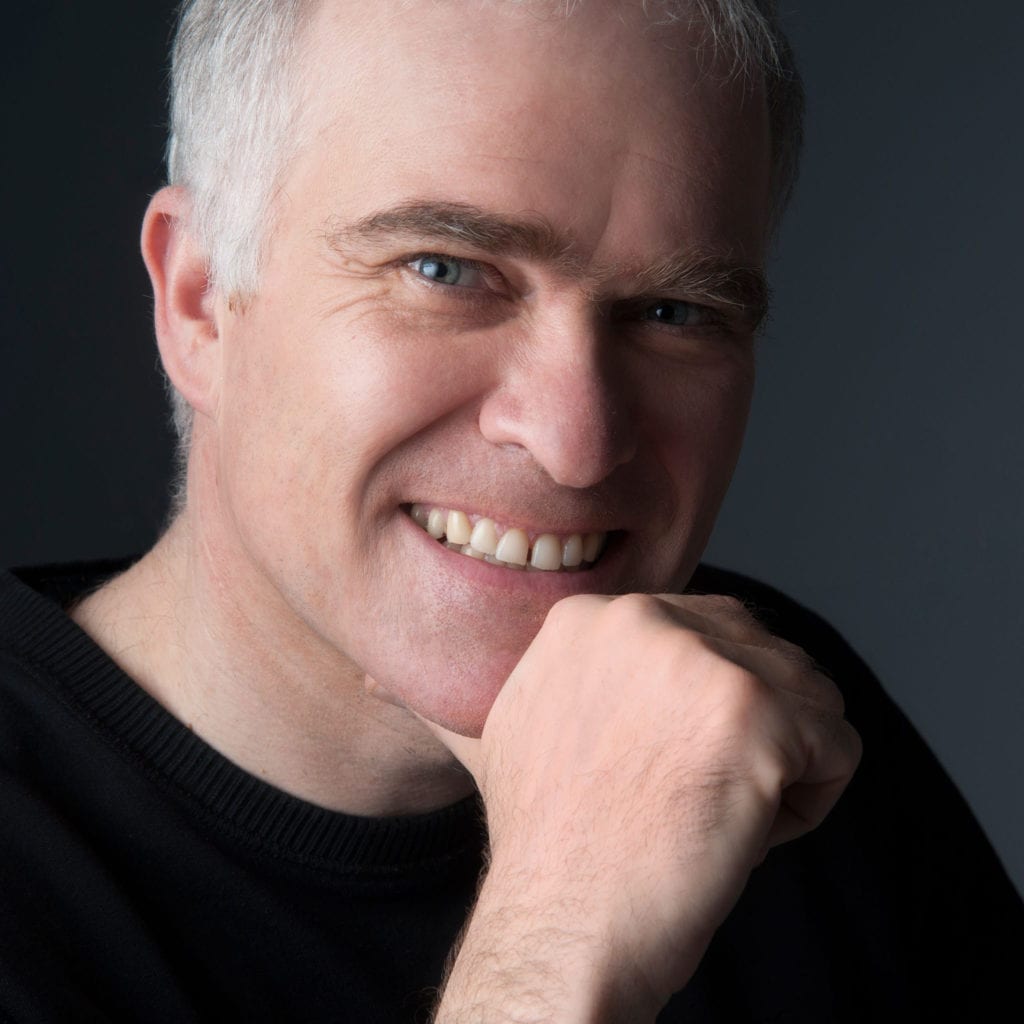
Kilian Keller started his deep dive in 2005 after life offered him a wake-up call that we were on a road to nowhere, and that it was a good idea to change direction.
Kilian Keller, 55, father of two, stands for worksphere evolution– a holistic view on leadership, IT, space. His ways rely on a diverse work life as architect, project manager, factory worker, kitchen help, strategy consultant, portfolio manager, mediator, artist, and a few more. He originates from Germany, with a second education by Native American teachers and work experience in 26 countries.
1000 Workplace – Powered by Human Experience Marie Puybaraud, JLL Corporate Solutions
A place of work is more than just a property. It is an evolving eco system that help people, organizations, systems and processes fit together. Work is where we form a lot of our relationships and it’s the foundation of our social interactions. A sense of belonging within the workplace is what connects us to our work as well as to our colleagues. We found 15 elements aligned against three key priorities, Engagement, Empowerment and Fulfilment, that are vital for creating a workplace experience to enable humans to thrive. A lot of these elements naturally focus on building features, but not all. There are other workplace factors such as human leadership, healthy collisions, fun, rituals, financial wellness, corporate philanthropy, learning, choice, which all contribute to creating a place of work. This session will take you through a discovery path to explore the human experience model we co-created with 40 clients, nourished by a survey of 7000 employees.
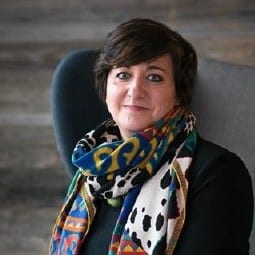
Marie Puybaraud is a Corporate Real Estate and workplace expert. As Global Head of Research for JLL Corporate Solutions, she has a significant track record producing CRE research on innovation and facilities management, and how this impacts the future world of real estate. She frequently collaborates with JLL clients, to drive research and innovation, presents at major global summits and writes for the international press.
1030 Workplace Nudging: How to make it easy and fun to use our workplace the way it is intended Simone Leenders, WorkWire
The introduction of new workplace concepts, like Activity Based Working (ABW), is often accompanied by many “thou-shalt-nots”, as a traditional motivation method to promote behavioural change. Although rules and guidelines are necessary to communicate desired behavioural changes, they also often lead to resistance. WorkWire developed a new methodology called Workplace Nudging, that addresses behavioral challenges and psychological resistance to change in the workplace and is aimed at giving employees a gentle “push” in the right direction. The concept of Workplace Nudging is based on two aspects, and directed at influencing human behaviour, but does not force a particular choice. It has a positive nature, as it focusses on offering attractive alternatives for current behaviour habits.
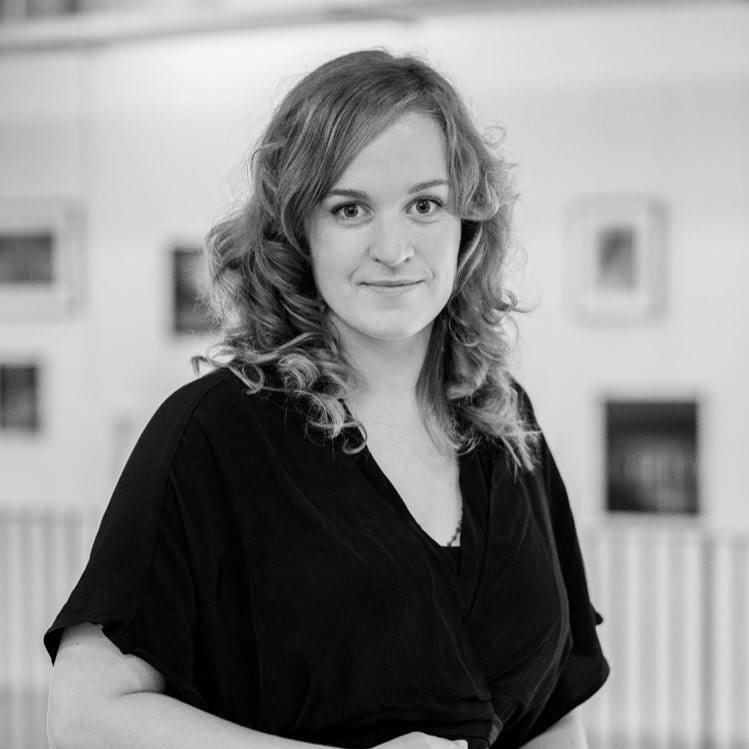
Simone Leenders, Managing Partner at WorkWire: Together with her clients, Simone creates smart workplace concepts that contribute to strategic organizational goals. She believes that culture and behavioural aspects play a crucial role in successful workplaces. No matter how well a work environment is engineered and designed, if the organisation does not fully utilize its potential, it does not add the value as intended. Simone is co-creator of Workplace Nudging and change management techniques that focus on employee engagement and ownership to ensure that new ways of working are more easily adopted.
1100 Coffee
1130 Successful business transformation strategies and employee engagement Nerys Mutlow, Head of Future Workplace Services, Fujitsu
Organisations that have undergone a workplace transformation at the same time as pursuing their strategic goals are proven to be more successful in both. Technology enables successful transformations in the workplace, but what are the business drivers that are forcing the change and what will happen when millennials run the boardroom? Understanding core needs is the catalyst for business transformation – But what are the key factors at play?
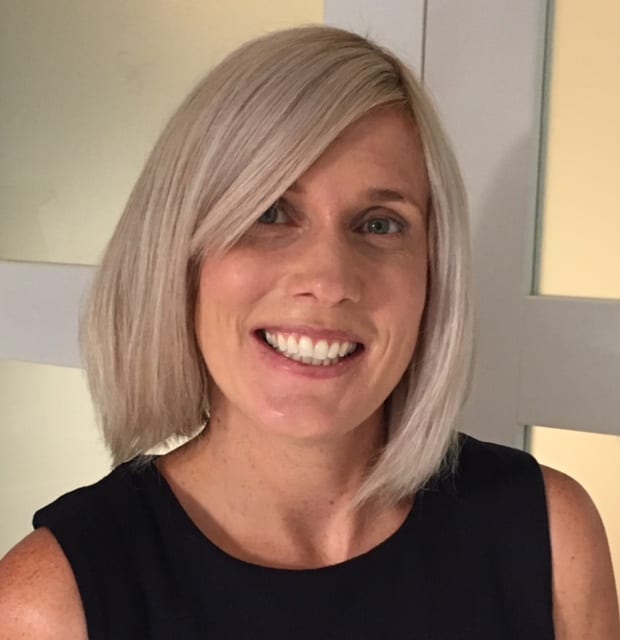
Nerys Mutlow is Head of Future Workplace Services at Fujitsu and leads the Consulting & Professional Services service line within DTS EMEIA. She was appointed as a Fujitsu Fellow in 2018 working with other Fellows and distinguished engineers to further drive technical excellence within Fujitsu and beyond, to their partners and customers. Nerys combines her wealth of technical expertise with her commercial acumen to help guide Fujitsu’s customers through their digital transformation journeys.
1200 The Campus of the Future Sam Sahni and Dean Rikanovic, Unispace
Woodside HQ in Perth, Australia is the smartest workplace in the world, where humanity meets technology to enhance capability and creativity. A smart campus with advanced technological capabilities, Woodside HQ enables a connected, dynamic and energised experience. At 680,000 sqft, the 4 buildings of this campus are leading standards of sustainability and wellbeing all while introducing Artificial Intelligence capabilities to assist the community. Designed as a destination workplace, this campus of the future is a connected ecosystem that enables flow, collaboration and spurs innovation.
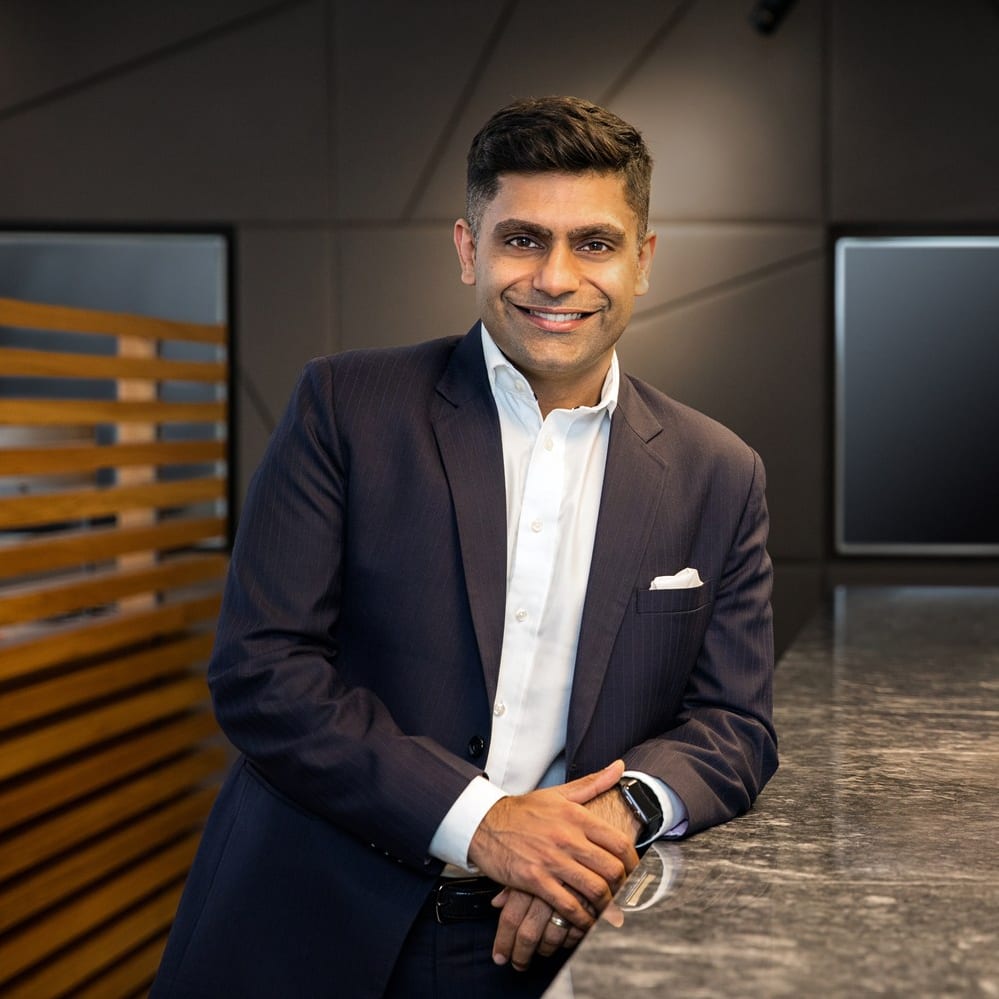
Sam Sahni is Unispace’s Regional Principal, Strategy (Europe) based in the London studio. Highly experienced within the consulting and construction industry, Sam’s knowledge comes from exposure to a variety of sectors including Finance, FMCG, Real Estate and Engineering. He’s a dynamic leader and thinker, with the ability to build business, develop client bases and take accountability for complex projects. Sam has also authored a number of organisational white papers and presented at industry conferences.
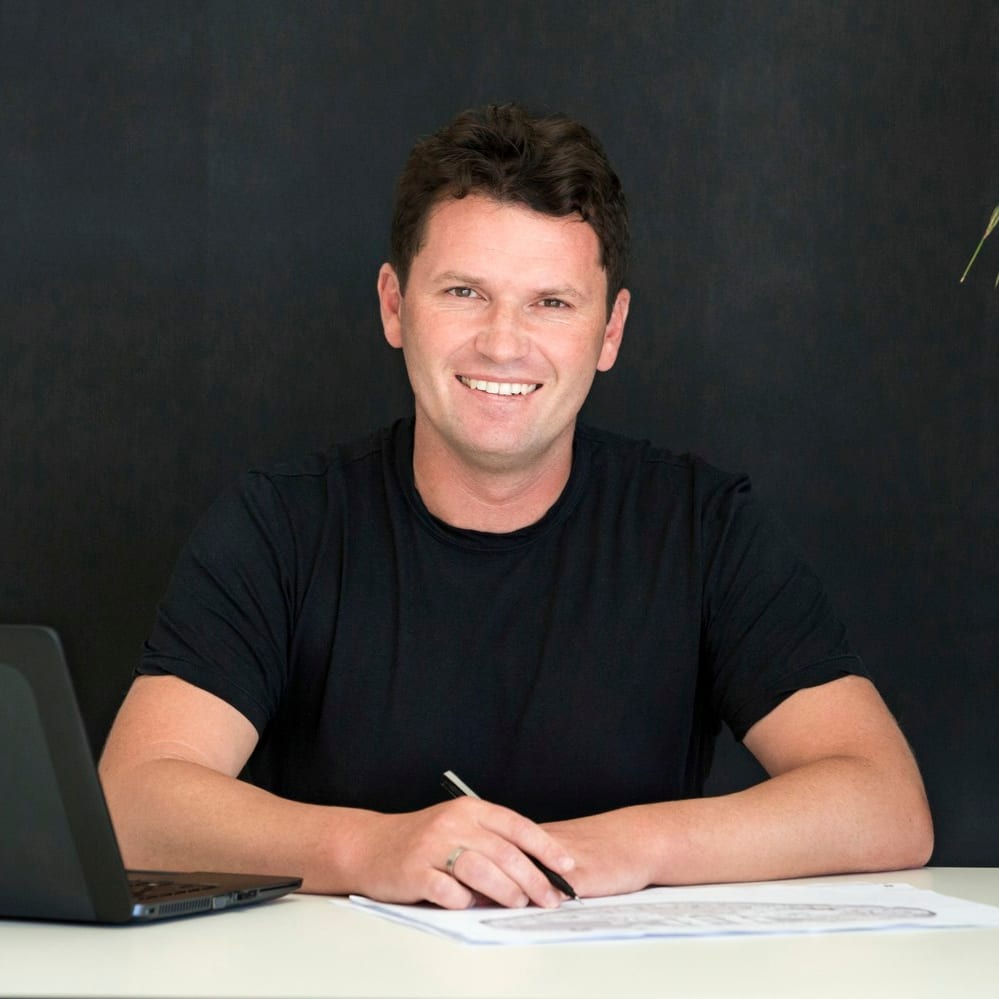
Dean Rikanovic: With highly developed conceptual design skills and 15 years professional experience, Dean is an innovative designer with a passion for high-end design. He has practiced across Australia and internationally, working on a number of award-winning projects. Currently based in Perth, Dean has also worked on some of Australia‚ largest workplaces, including ANZ Centre Docklands.
1230 Olympic House: user experience and sustainability at the centre Marie Sallois, International Olympic Committee and Catherine Bonnet, CBWorkPlaces
Olympic House, the new HQ of the International Olympic Committee in Lausanne, has been designed for its inhabitants around the five key elements of symbolism, integration, flexibility, collaboration and sustainability.
It combines the highest standards in collaboration design with a holistic approach to sustainability, by incorporating rigorous criteria in energy and water efficiency, while optimising the end user experience and wellbeing.
Key objectives were:
- User experience & sustainability
- Foster collaboration in relation to corporate culture
- Support healthy and active lifestyle through design and building technology
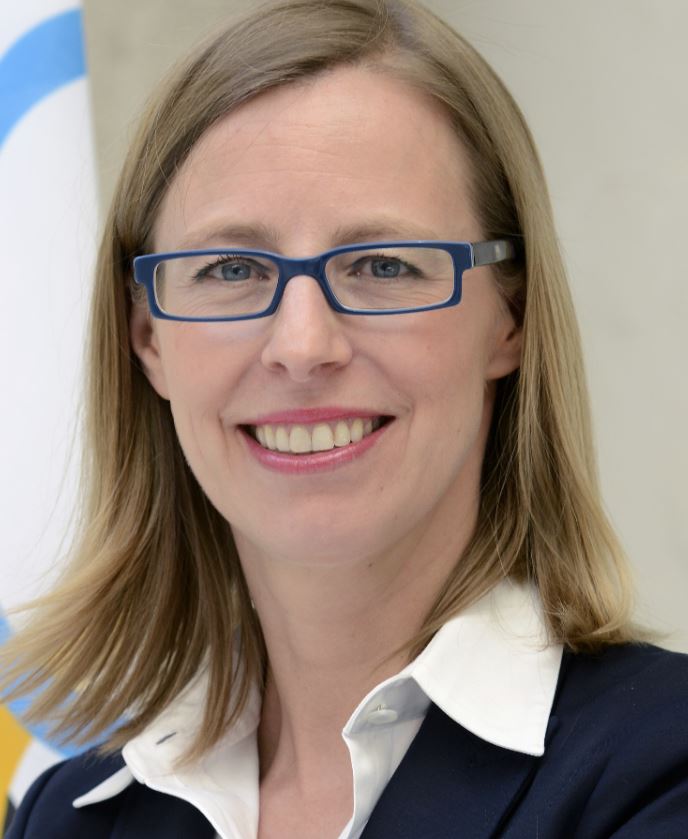
Marie Sallois is currently the Director of Corporate Development, Brand and Sustainability at the IOC, where she has been working since 2004. Among other things, she is responsible for the IOC Headquarters project, Olympic House, which will open this year. She is also in charge of the implementation of the IOC Sustainability Strategy and the IOC Legacy Strategic Approach, which are core to the Olympic Movement’s strategic roadmap, Olympic Agenda 2020.
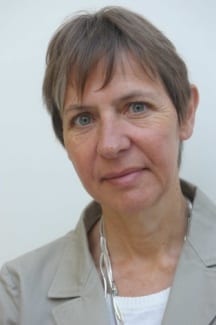
Catherine Bonnet is an architect and anthropologist by training, she specialises in developing work environments, concepts & designs linked to companies’ strategies. She has a proven track record of 25 years working with local to global multinational companies, and ensures dynamic alignment of an organisation’s long-term, as well as immediate goals, with an effective work environment to enable peak performance, people satisfaction and reduced costs.
1300 Lunch All encouraged to add their thoughts to our sticky-note futures wall
1405 Afternoon chair’s welcome back Mark Catchlove, Herman Miller
1415 The Biophilic Office – Putting People First Ed Suttie, BRE and Oliver Heath, Oliver Heath Design
The Biophilic Office is a long-term research and demonstration project from BRE and Oliver Heath Design. As it moves into the next phase, conference delegates will be among the first to hear the early results.

The project refurbished an entire floor of an existing office building at BRE, using a variety of biophilic design methods to assess the value that Nature-inspired design brings to the wellbeing and productivity of office workers. The project spans two and a half years: in year one, current working conditions (indoor environment and occupants) were monitored and the office was then refurbished and the occupants returned to the office. During the final year the project focusses on analysing the impact the biophilic design strategies had on the workers.
Ed Suttie leads the Biophilic Office Project at BRE. He is passionate about material sustainability, health and wellbeing in the built environment, people, forestry, rural supply chains and the polar regions. In April 2016 he ski-trekked to the North Pole raising £60,000 for some amazing charities!
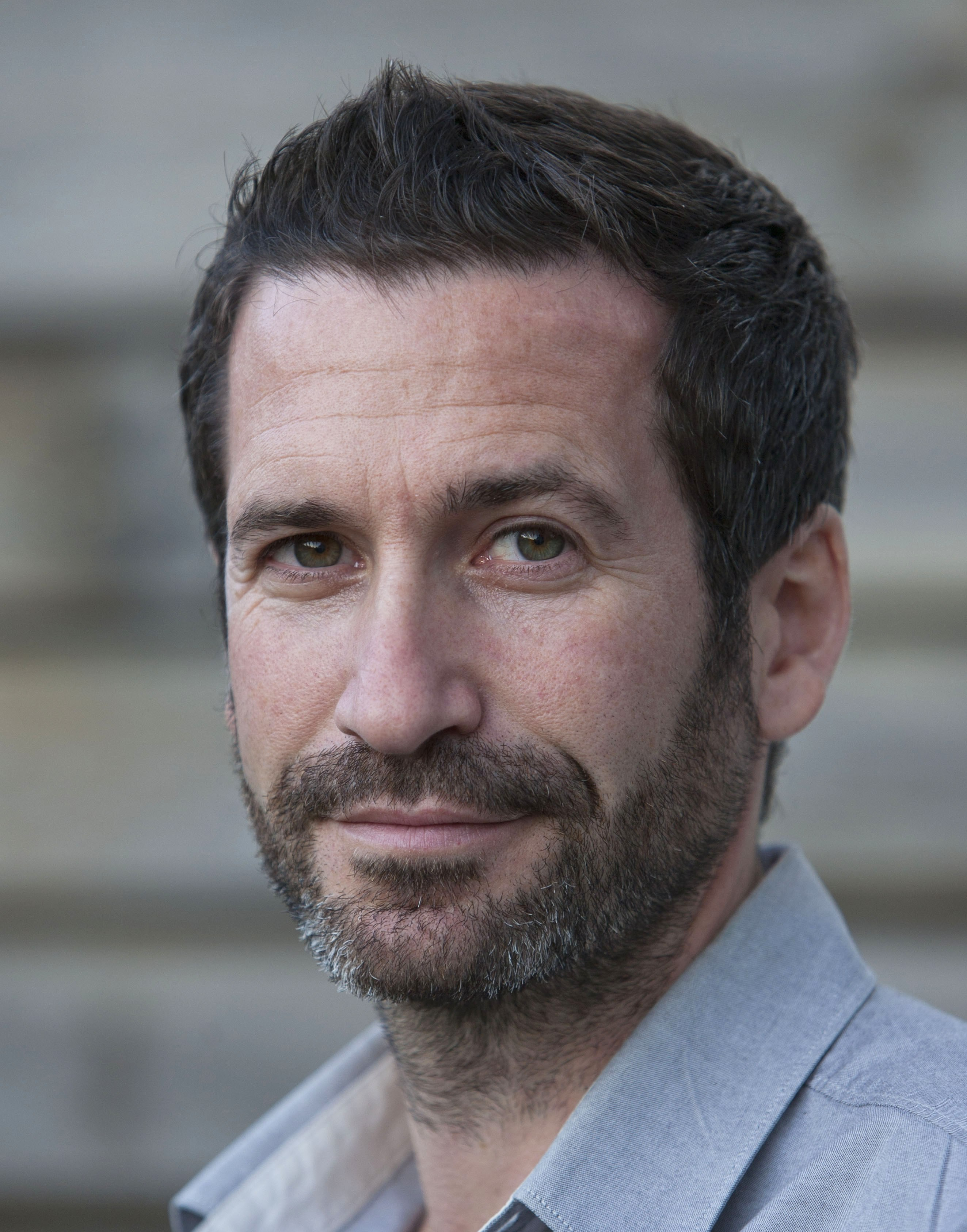
Oliver Heath is an architectural and interior designer and a recognised global expert in Biophilic Design. His work is expressed in number of mediums including the built environment, writing and the media, having worked for a number of television channels including BBC, ITV channel 4 and the National Geographic channel. His last book Urban Eco Chic (Quadrille) sold over 30,000 copies in 6 languages.
1445 Managing change and the importance of core values in property and business Neil Rebeugeot, Property Portfolio Consulting Lead, ARUP and Rebecca Goldberg, Associate, ARUP
Why are company core values important for implementing successful change, and why should we consider them on workplace projects? Too often, token change management is bolted on to a fully designed workplace project, but to embed real change we need to engage at a deeper level. This talk is about why connecting with core values early on can both inspire the design and help your people on the journey to successful change.

Neil Rebeugeot, Director, Arup: I lead the Property Team in Arup Consulting, which includes Property Advisory Network and Global Financial Services. As an individual who has worked on the client side for over 20 years I am passionate about providing people and their broader organisations with the right platform, the right experience to carry out their ‘every day’ in achieving their ambitions in the most effective way. I joined Arup 12 months ago because I wanted to use my skill to leverage the Arup integrated model, and to work with clients to understand their portfolio vision for the future for sustainable change. It’s an exciting time because ‘Change is Usual’!

Rebecca Goldberg, Associate Director, Arup: As a member of the People and Change team in Arup Consulting, I lead our Living Workplace service. I am a huge believer in ‘humanising’ our technical and digital workplace projects, putting people at the heart of all we do. I work with clients to understand their Vision for the future, and help to bring that Vision to life through delivery of user centred change.
1515 Tea
1545 Designing Out Loneliness in the Workplace Rachel Edwards, Lendlease and Nigel Oseland, Workplace Unlimited
Does a workplace bring people together? Or does it push people apart? Loneliness is a growing problem, and although advances in technology make it easier than ever before to be connected to others, in reality people are feeling increasingly isolated.
‘Connecting in the Workplace’ is a new research study looking at the problem of loneliness in the workplace. For a short time you can take part in the research here, and we’re delighted that Lendlease will be presenting the project findings and recommendations at our conference.
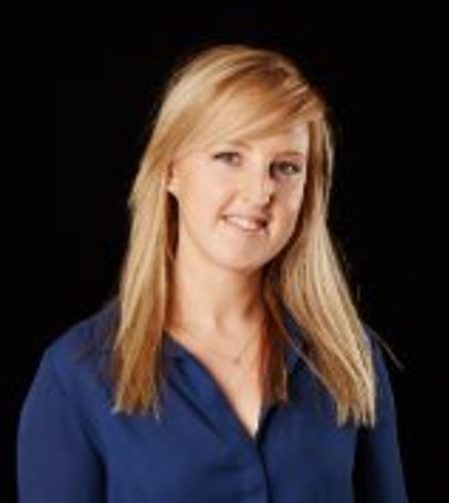
Rachel Edwards is Senior Workplace Consultant at Lendlease. She has 11 years of experience in workplace strategy, contributing to the development of pioneering workplaces globally, through evidence-based design. Rachel is all about how people use the places that we build. She is passionate about building sustainable workplace communities, with a focus on how the design of places can impact the lifestyle of people and culture of organisations. One of Rachel’s most recent activities is in The Loneliness Lab, a social impact project aimed at designing out loneliness in our cities through the physical design of space.

Nigel Oseland is a workplace strategist, change manager, environmental psychologist, researcher, international speaker and published author. He draws on his psychology background and his own research to advise occupiers on how to redefine their workstyles and rethink their workplace to create working environments that enhance individual and organisational performance and deliver maximum value. Nigel founded the Workplace Change Organisation and is the programme advisor for the Workplace Trends conferences.
1615 Mental health and productivity in work culture. How to tackle both at once Madeleine Evans, Levell
Mental health is high on the agenda of corporates and start-ups, thanks in part to the work of major charities, like MIND, and the government’s 2017 Stevenson Farmer Review report, Thriving at Work. At the same time, companies and people are struggling with productivity increases, and making operational and organisational changes to address this. These two issues are being treated separately by people and companies. Why? Madeleine will highlight insights from the academic research on burnout, which help us understand the intersection of mental health and productivity for people and companies. We will look at simple frameworks for how to think about the main drivers, and the levers you can pull as leaders or consultants of organisations – across personal behaviour, work and resource allocation, and the environment and culture at work.
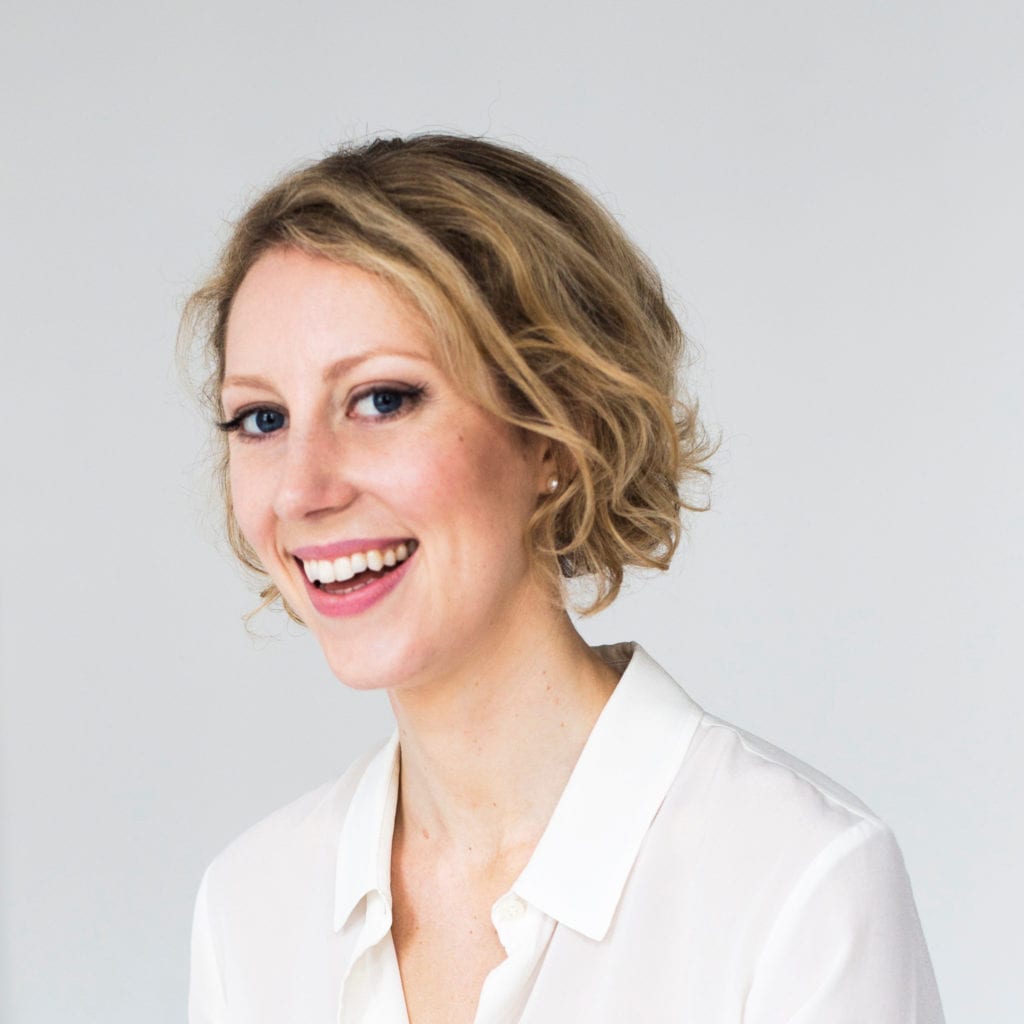
Madeleine Evans is the founder and chief executive officer of Levell, a start-up with the mission to eliminate burnout, by putting well-being right along side performance, ‘on the priority list’, for people and companies. She has a background in digital and work transformation, loves design, and having started this company, is proud to also have a PhD-level knowledge of academic research on burnout and well-being at work!
1645 Chair’s Close and reflections from our Futures Wall
With thanks to our conference moderators Paige Hodsman, Saint-Gobain Ecophon and Mark Catchlove, Herman Miller Insight Group
1700 Drinks Social
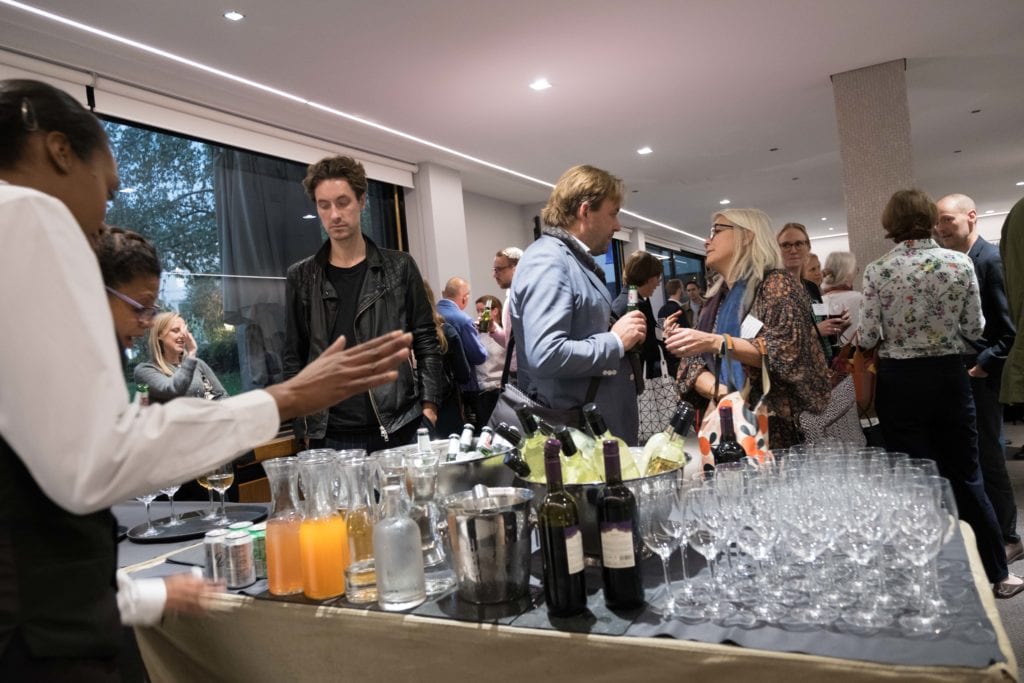
As with all our events, everyone is welcomed to an informal Drinks Social immediately after the conference close. Here, the discussion continues, and you can catch up with old friends and make new connections.
Venue
We’re delighted to be at the home of the RIBA for our event. With a comfortable Jarvis Hall auditorium for the main conference, and the light and airy Florence Hall and Terrace for our reception and catering breaks.
Conference Registration
We have two registration options – attend in person, or virtually!
Virtual Attendance: It’s great to be there on the day, but if it’s a trip you just can’t manage, you can attend virtually through our live stream. You’ll be able to see presenters and their slides clearly on your screen. You’ll also be able to take part and comment in the feed, plus pose questions to the speakers. And if the time doesn’t work for you, watch the recording afterwards.
Registration Fees:
Attendance in person: Standard Rate £345 + VAT (1 delegate) and £635 + VAT (2 delegates) Virtual attendance: Standard rate: £245 + VAT
In both cases* your registration fee includes:
- Immediate access to our conference app, so you can see and connect with fellow delegates ahead of time, see up to the minute details on the conference, invite colleagues to join you, see our twitter stream and more.
- Video recordings of presentations filmed on the day
- PDF copies of presentations
- All daytime catering: welcome tea/coffee/pastries, lunch, usual break-time refreshments (*in person delegates only!)
- The Drinks Social (*in person delegates only!)


